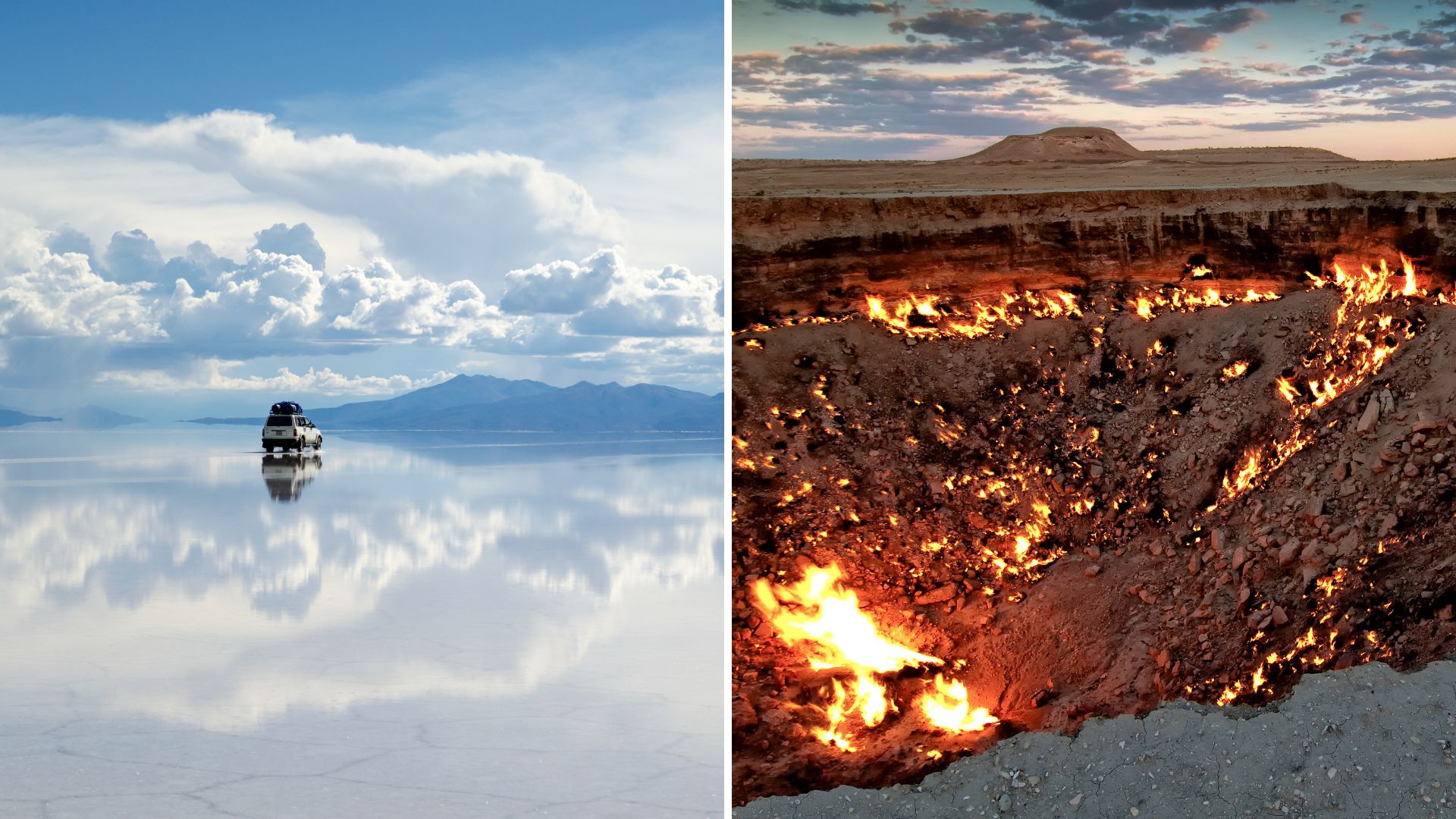
We should wander as often as we can and fill our days with as much wonder as possible - and that's why we travel.
From under-the-radar destinations worth a visit to the most romantic places, the world is full of wonders that are waiting to be explored. But you might want to up the ante and discover somewhere that feels so unusual, so unexpected that it almost transcends reality.
From the most epic woodlands to bewitching examples of natural phenomena, these are some of the most unreal places on Earth.
32 of the most beautiful places on earth that look unreal
Atacama Desert, Chile
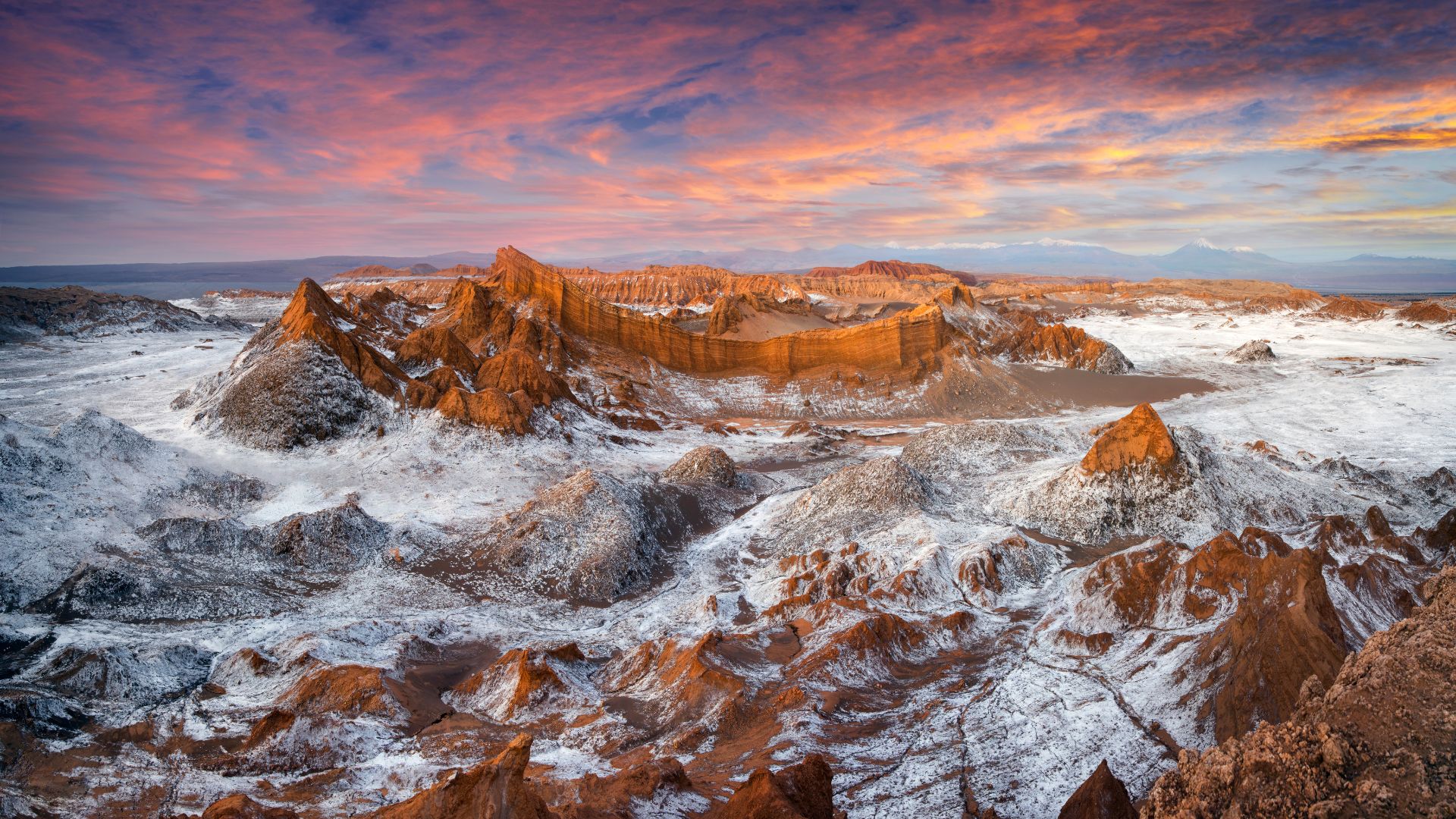
This stunning and surreal landscape is sometimes referred to as Valle de la Luna (Valley of the Moon) and many visitors might feel as if they’ve somehow stumbled upon the moon when they navigate the arid terrain.
The desert is located in northern Chile and apart from looking lunar, the area is considered one of the driest places on Earth outside of the polar regions. It’s thought that areas of the region can go decades without a drop of rainfall.
Arashiyama Bamboo Grove, Japan
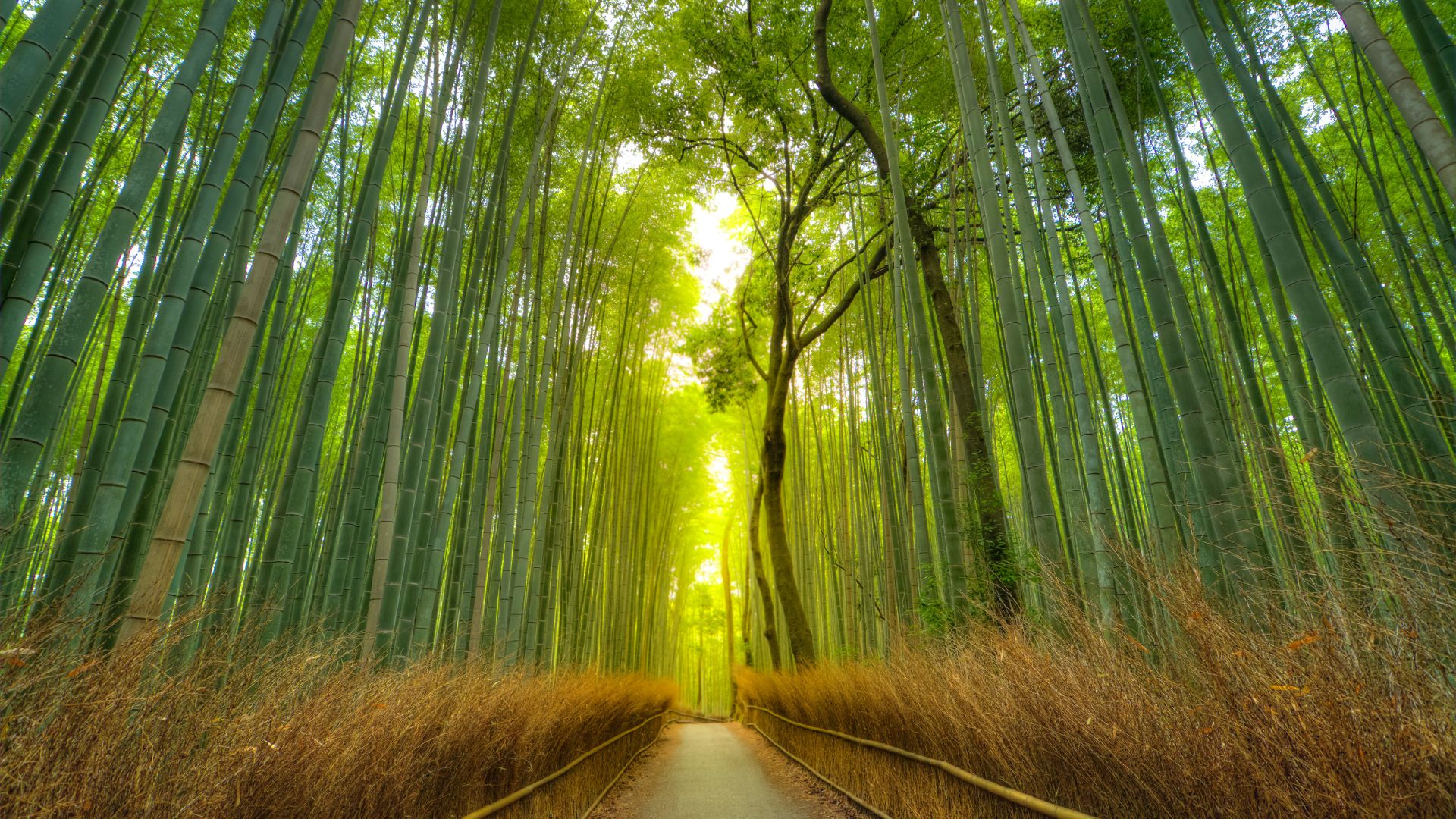
Ever want to truly escape into a world of tranquillity and serenity? You can’t get much more peaceful than the quiet, breathtaking beauty of the Arashiyama Bamboo Grove, located on the outskirts of Kyoto.
With a horizon of Moso bamboo, a species known for rapid growth, with stalks reaching heights up to 100 feet tall, the towering canopy shuts out the rest of the world as visitors embrace the calming and meditative oasis.
For anyone planning a visit to Kyoto, the bamboo groves are also not far from the Tenryu-ji Temple and the Togetsukyo Bridge, making it well worth a visit.
Cameron Highlands, Malaysia
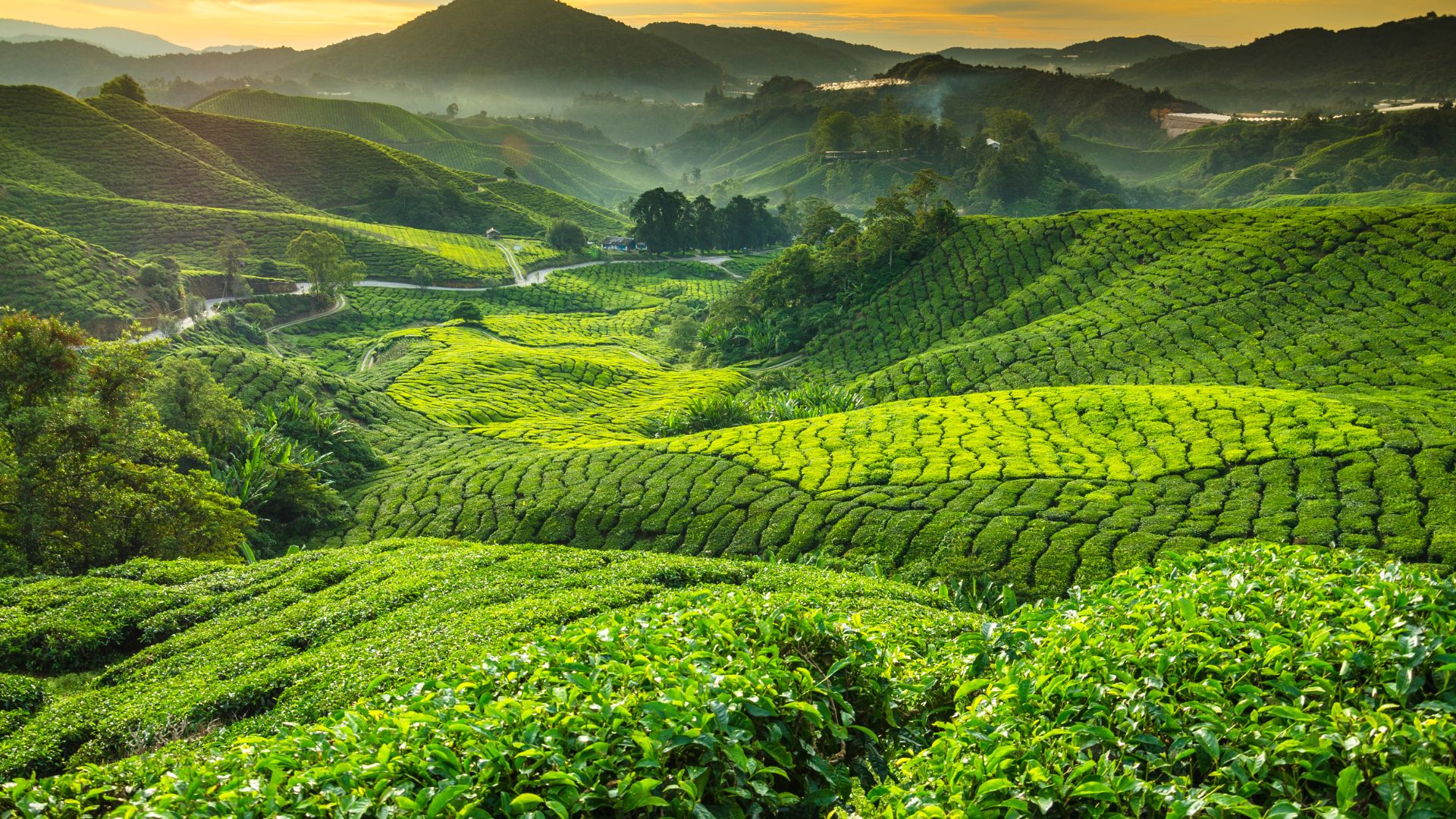
England doesn’t have the market on rolling green hills – and Pahang’s Cameron Highlands are proof of that. With vast, luscious greenery dominating a 275-square-mile region, the Cameron Highlands are a marvel to behold.
The area is home to the largest tea plantations in the country and the landscape is made up of bountiful greenery, butterfly gardens, the Boh Tea Garden and strawberry farms. A great place for an epic hike, and a place where you could soak up some unspoiled nature.
Zhangye Danxia Geological Park, China
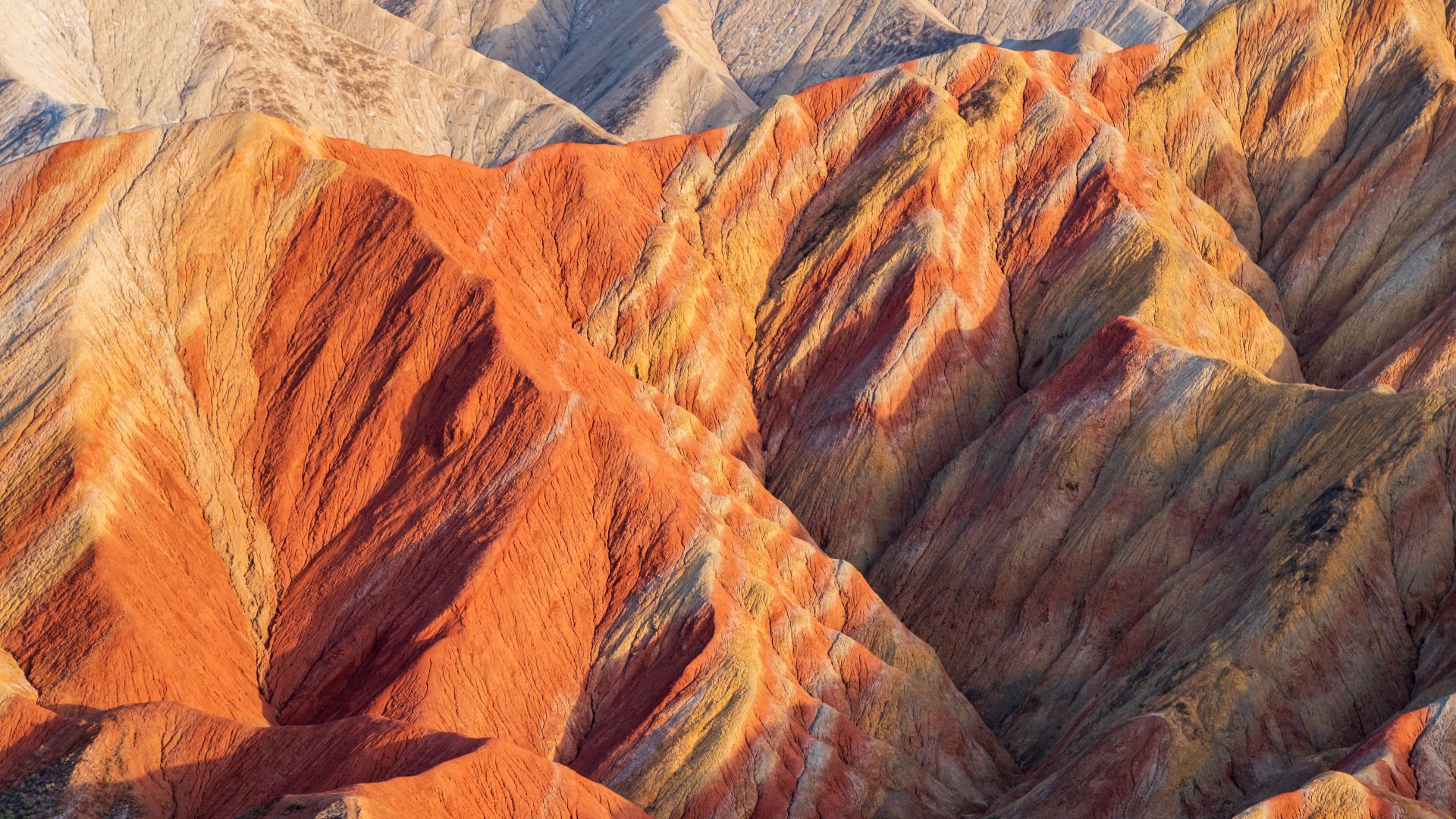
Is there life on Mars? Or do we even care because this fascinating geological formation that looks like it could be a snapshot of the red planet is right here on Earth.
Located in the Gansu Province in China, the jaw-dropping, technicolour rock formations look out-of-this-world and are the product of millions of years of natural processes. The red sandstone and mineral deposits have been forming for more than 20 million years, causing the layered effect.
Sequoia National Park, California
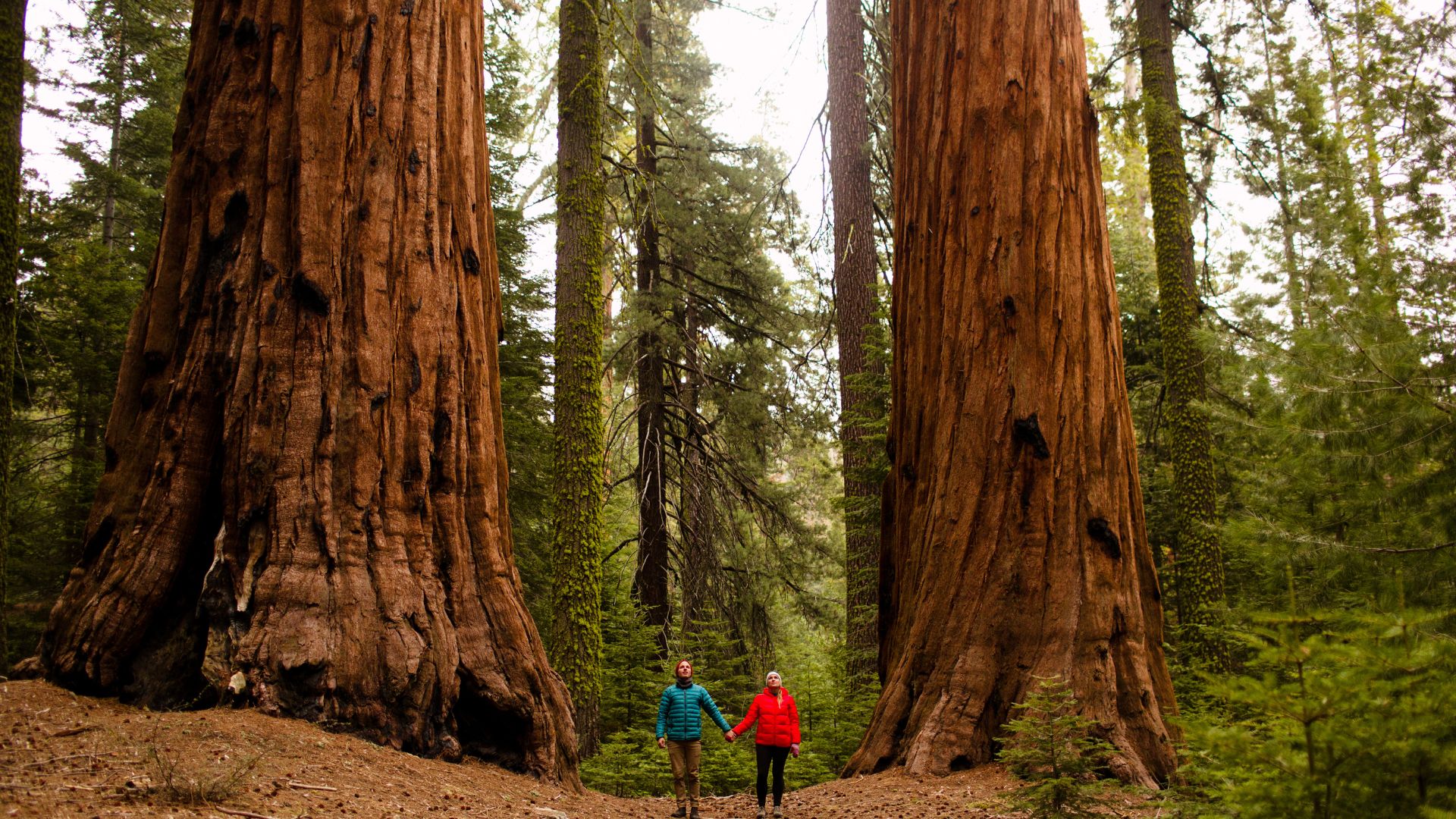
Sometimes we all need a stark reminder of our place in the natural order. When things feel overwhelming or problems feel huge, try to visit the magnificent Sequoia National Park in Visalia, California where everything feels… small. Small against the giant, historic trees, which feel like they’ve been growing since the first day on earth.
The national park is home to the General Sherman Tree, the largest tree in the world by volume, thought to be up to 2,700 years old and measuring 106 feet in diameter. As well as finding peace among the trees, visitors can take guided tours through the caves or hike up the Moro Rock for panoramic views.
Crystal Shower Falls, New South Wales
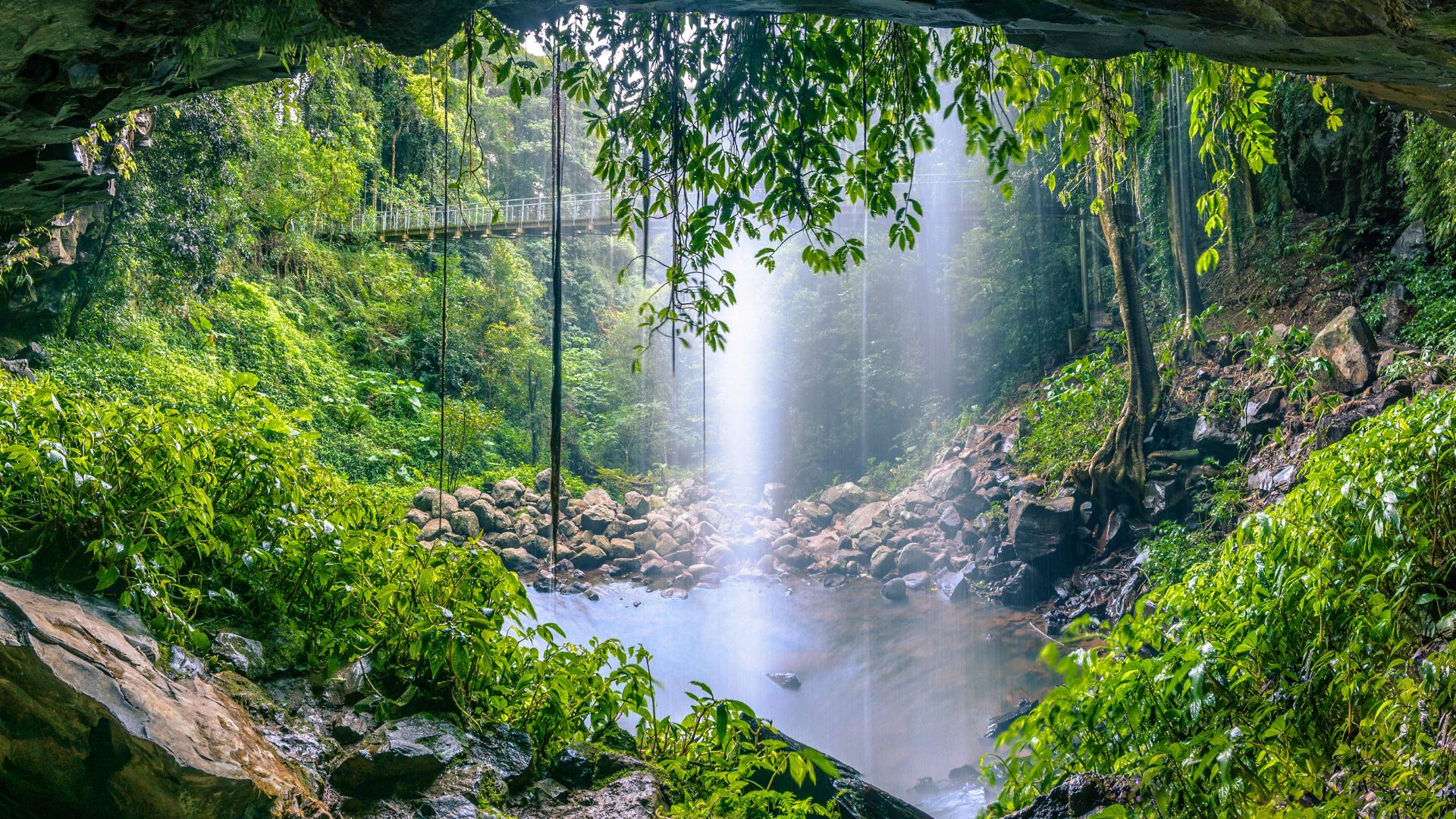
In Australia’s Dorrigo National Park, there are spectacular waterfalls that appear to cascade from nowhere. The park is part of the Gondwana Rainforests of Australia World Heritage Area and is a perfect spot to challenge yourself on a rainforest hike, or somewhere to simply sit and soak up the wonder of nature.
Lake Baikal, Russia
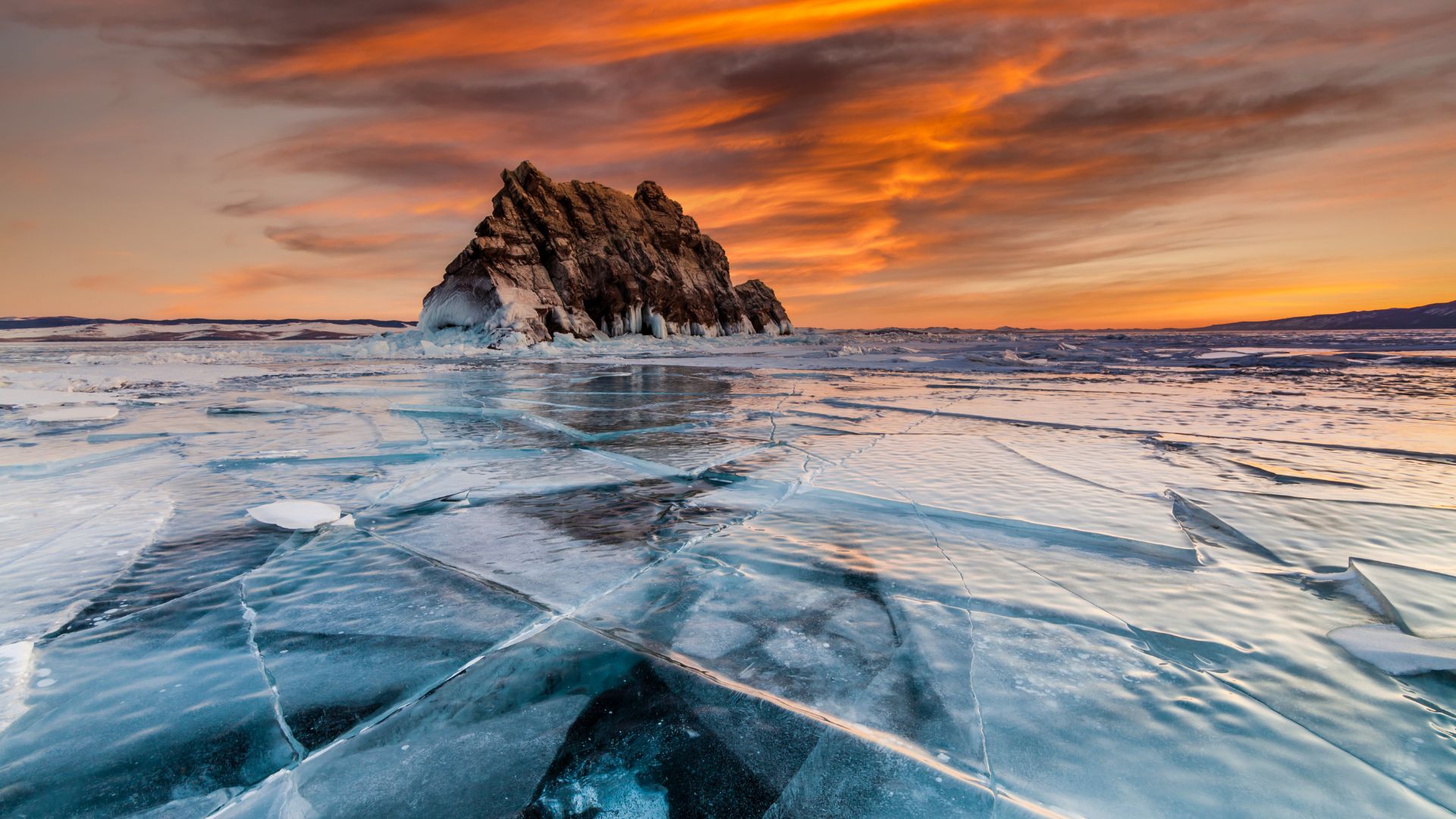
Found in southern Siberia, Lake Baikal is the world's oldest lake, thought to be anywhere between 25 and 30 million years old. With incredible (or incredibly terrifying) depths reaching up to 5,385 feet, the lake is famous for being crystal clear and, during winter, freezing over to form unique ice hummocks which jut out and create beguiling natural patterns.
If you decide to visit, you might even be lucky enough to spot the Baikal seal, the only freshwater seal in the world.
Isle of Skye, Scotland
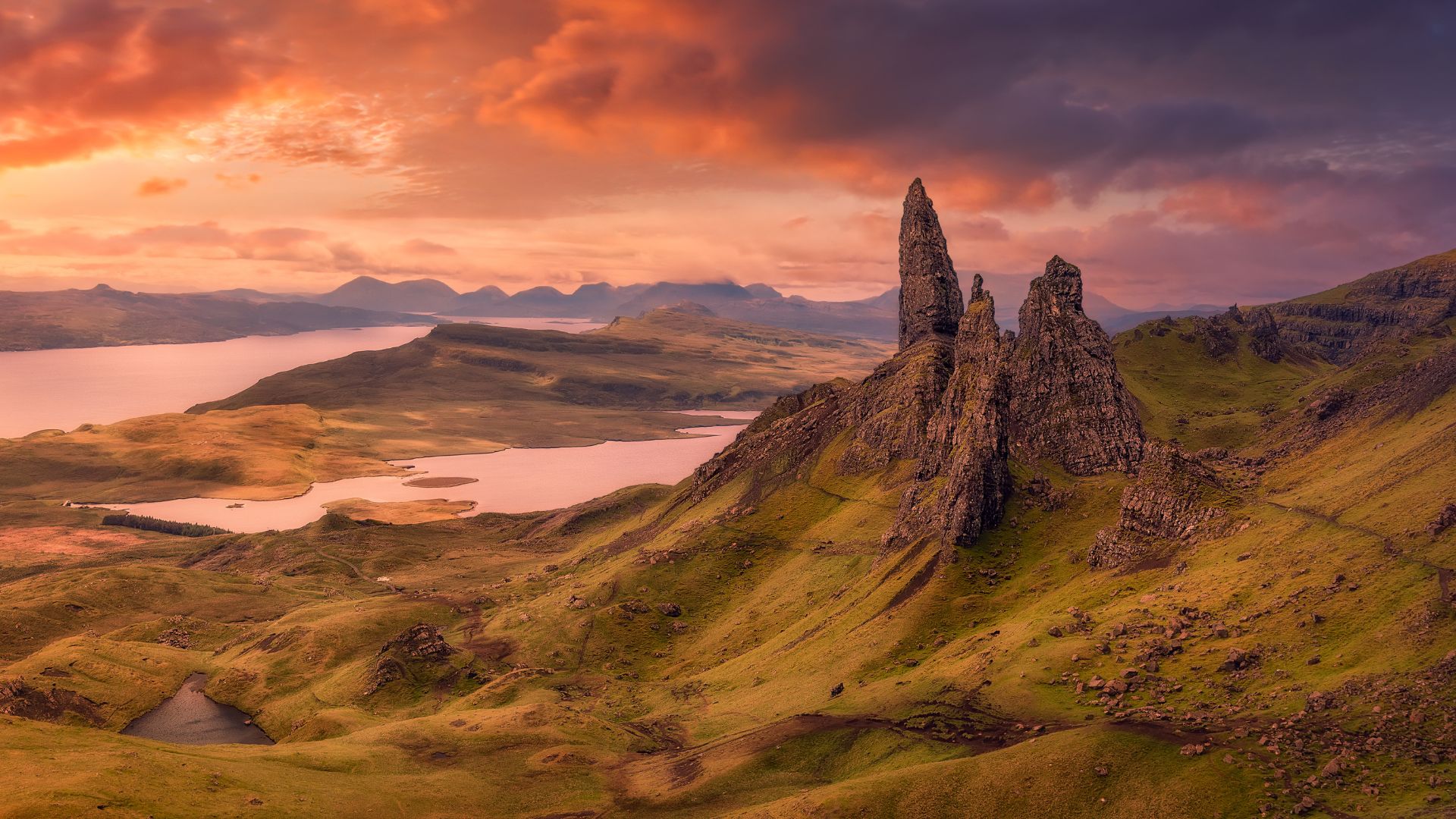
Part of the Inner Hebrides off of Scotland’s West Coast, the Isle of Skye is an area of natural wonder and awe-inspiring beauty. With deep lochs, winding coast, ancient castles and dramatic peaks, the land feels touched by history and mystery.
Indeed, one of the highlights of the region is the Old Man of Storr, a 160-foot pinnacle which has appeared in films including Snow White and the Huntsman and The Wicker Man and old folklore legend has it that it’s the burial place of a giant.
Lake Tekapo, New Zealand
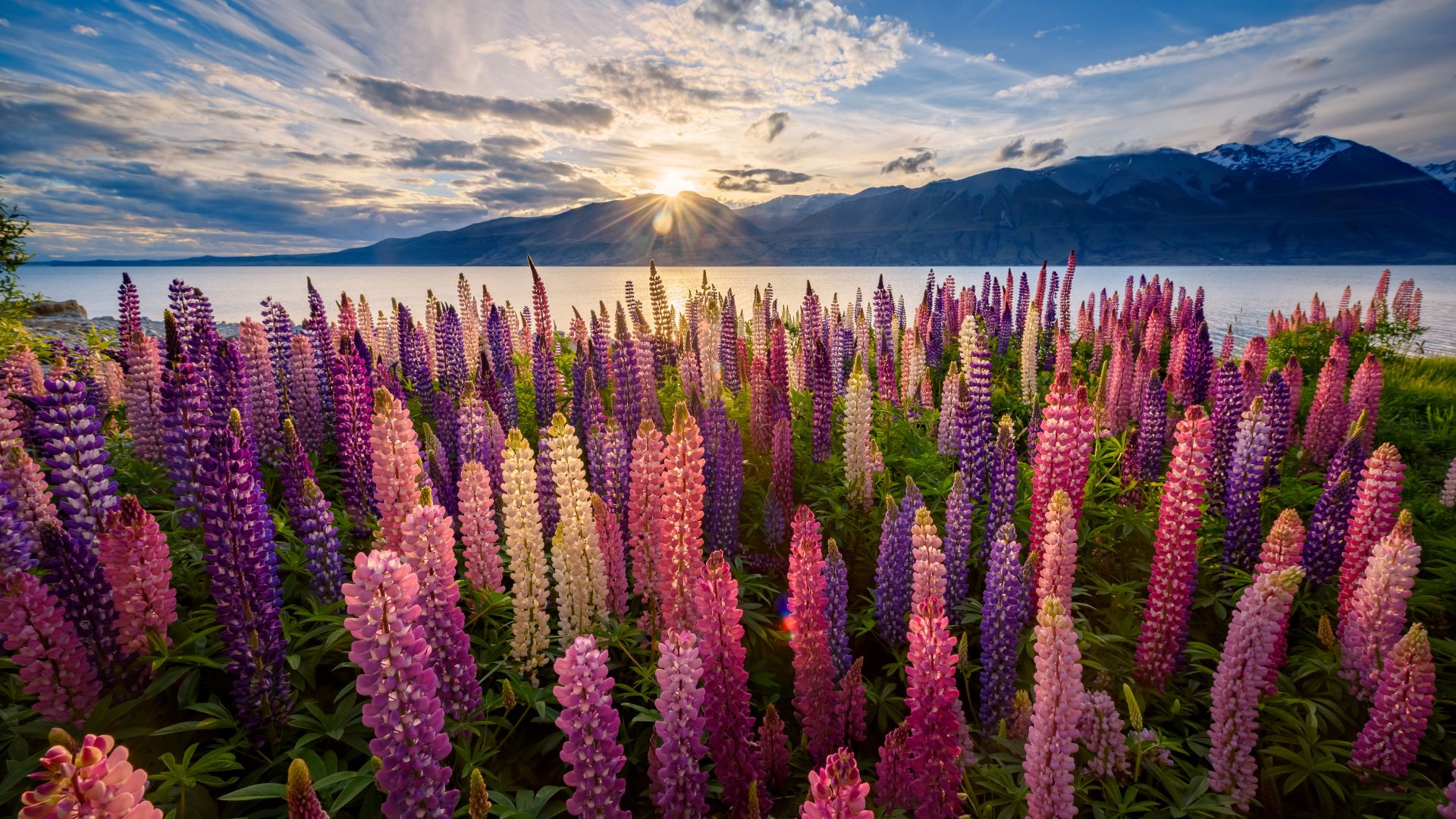
On New Zealand’s South Island, Lake Tekapo is a serene, shimmering body of water with some of the clearest, turquoise waters. However, for once, this isn’t the only highlight.
Contrasting the waters and giving the region a truly memorable vista is a sea of purple, pink and blue lupin flowers which defy all logic – the flowers aren’t native to New Zealand and hail from North America.
Have your camera ready because this meeting of blooming flowers with a beautiful body of water is the ultimate testament to the beauty of the natural world.
The Great Barrier Reef, Australia
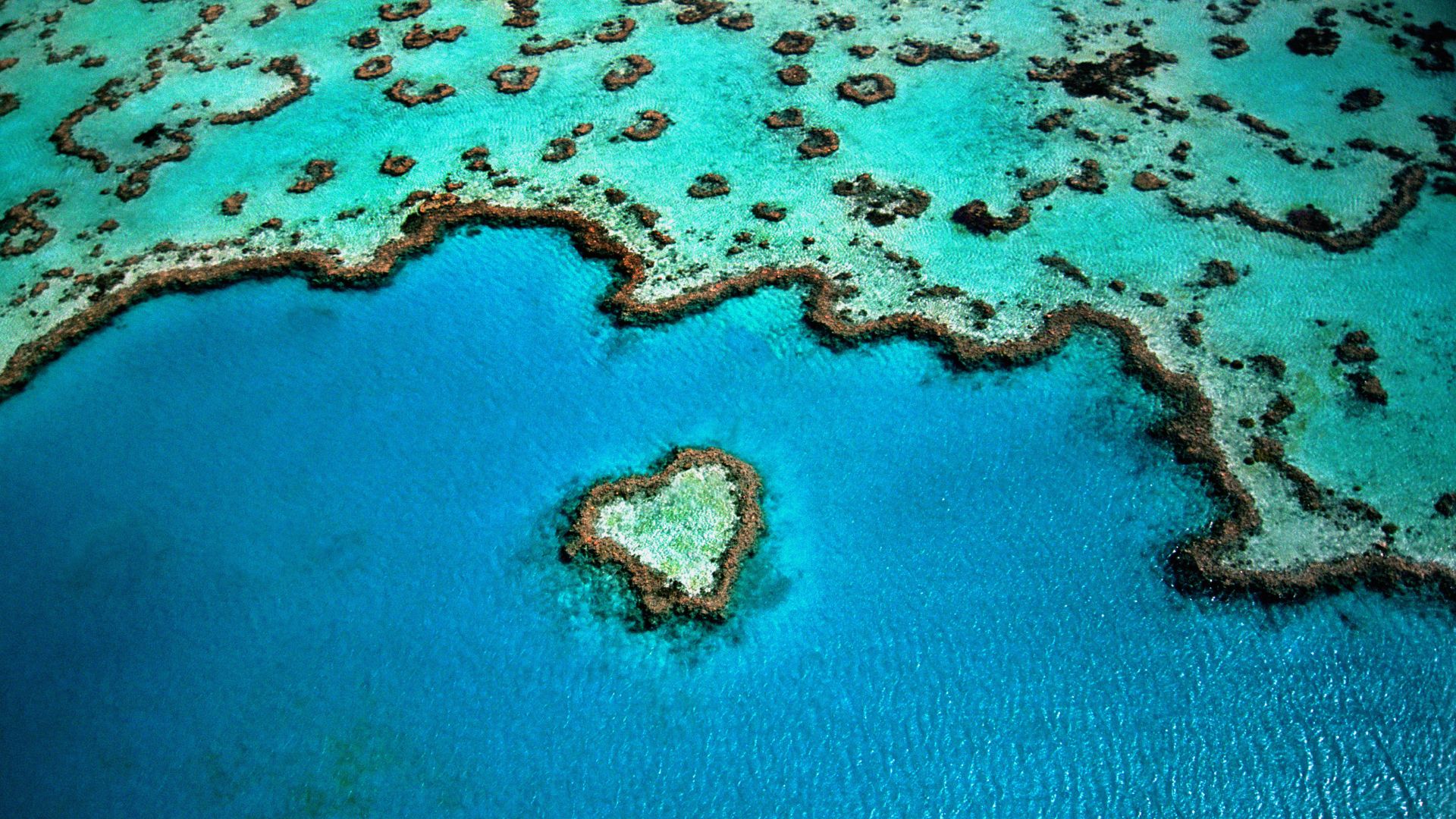
The largest living thing on earth (which can be seen from space, for added amazement), the Great Barrier Reef truly must be seen to be believed.
A sprawling, spectacular testament to the power of nature, keen snorkelers and travellers come from all over to explore the vast reef – and when they resurface from their aquatic adventures, they are rewarded with some of the best beaches in the entire world, such as Whitehaven Beach.
Salar De Uyuni, Bolivia
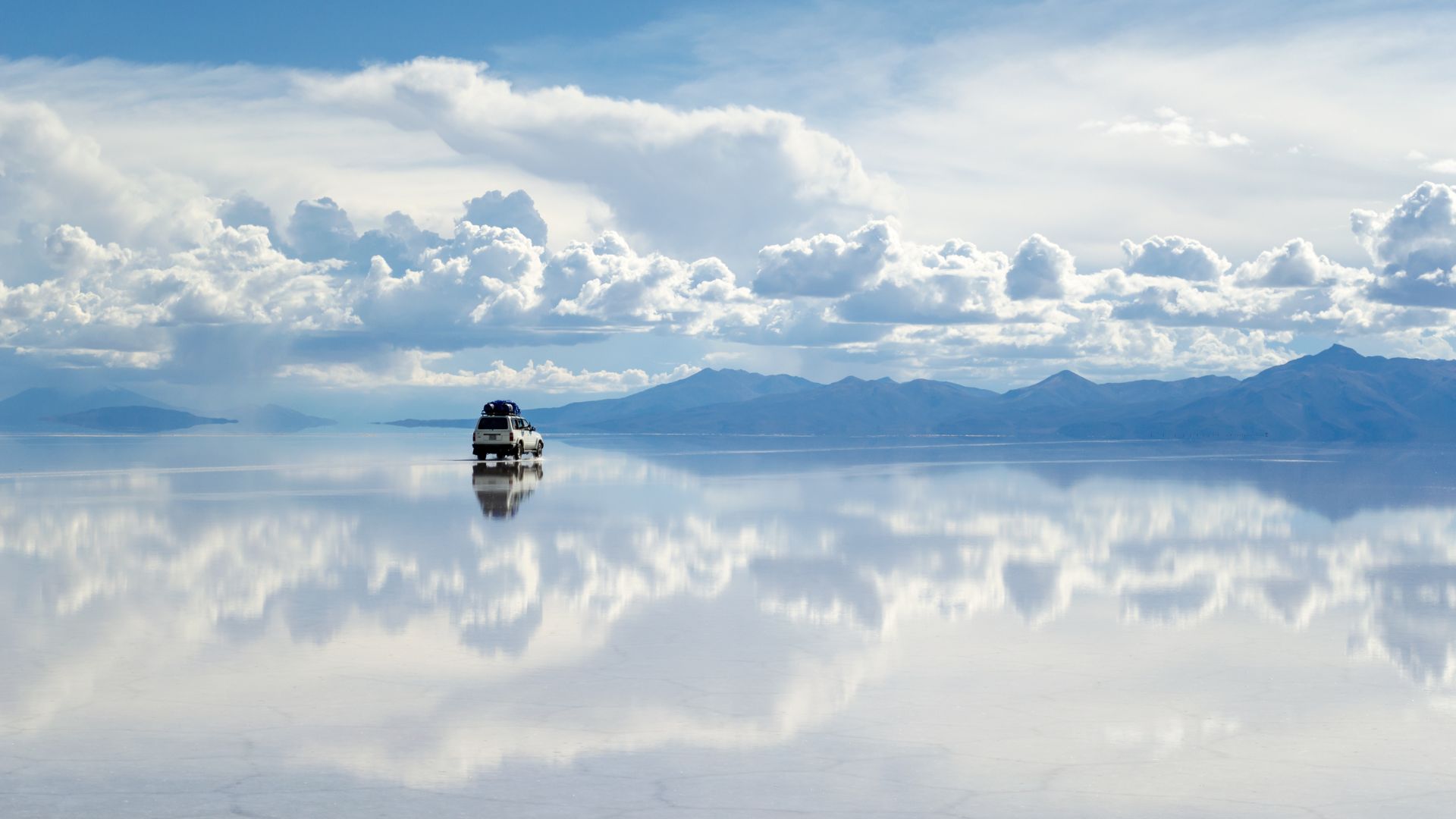
The largest salt flats in the world are found in the south-west of Bolivia. When it’s dry season, the salt flats form as huge, dazzlingly white tiles. During the wet seasons, the ground forms lakes that act almost like perfect mirrors, creating the sense of the sky merging into the ground.
If the thought of seeing the ground become one huge mirror during the rainy season doesn’t already sound surreal enough, the fact that the area is home to pink flamingos makes it even more bizarre.
Great Blue Hole, Belize
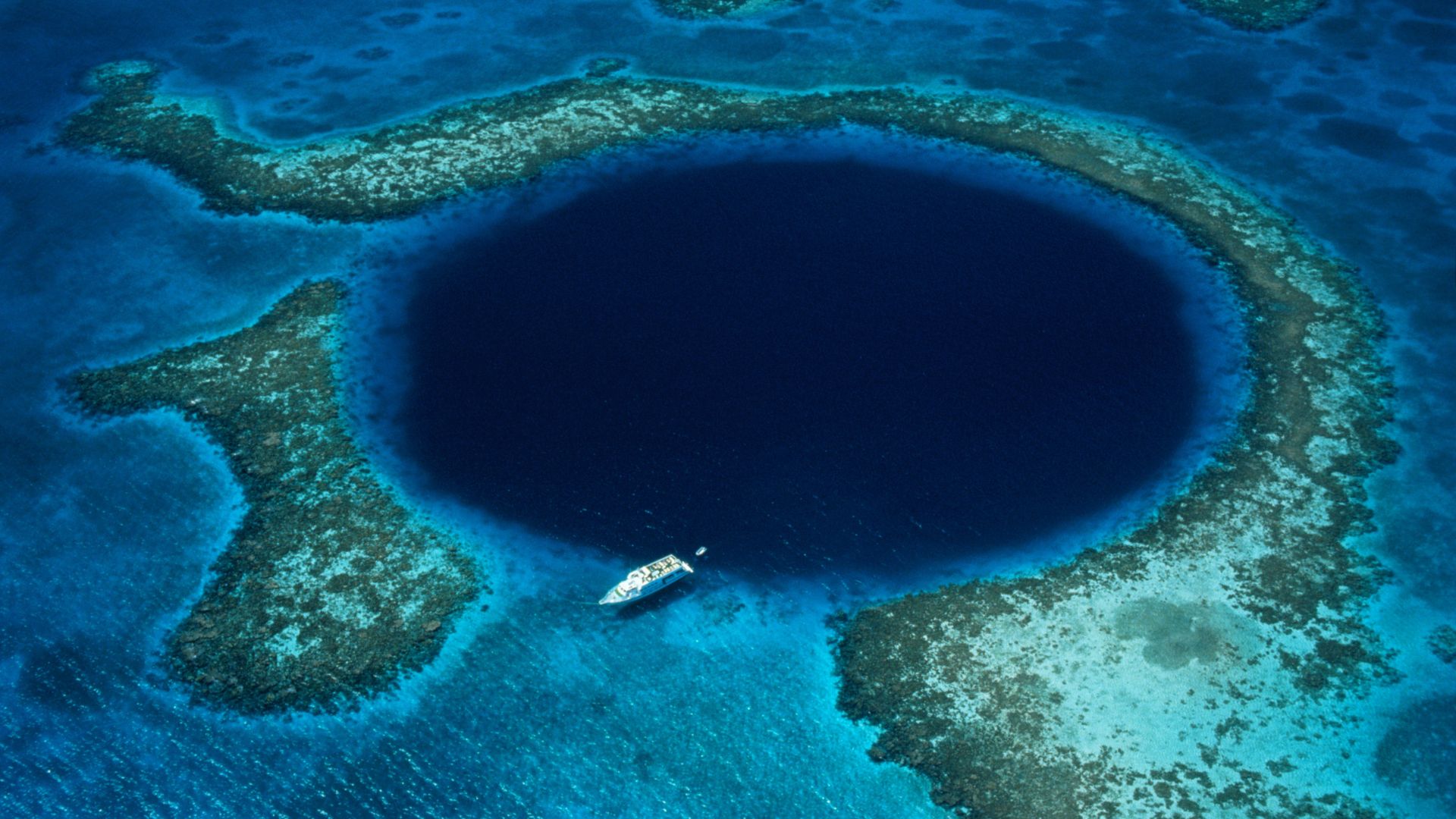
If you’re nervous about what lies beneath, stay clear of Belize. There – specifically the Lighthouse Reef Atoll, just off the coast – you’ll find a great blue hole, creatively known as... The Great Blue Hole. While it can look like a portal to another dimension, it’s actually a massive marine sinkhole and hugely popular amongst divers.
The water inside is deceptively clear and, even though it might look like a black hole to nothingness, it’s actually home to diverse marine life, including sharks, turtles and different species of fish. The Belize Barrier Reef (Great Blue Hole included) is a UNESCO World Heritage Site.
Lake Bled, Slovenia
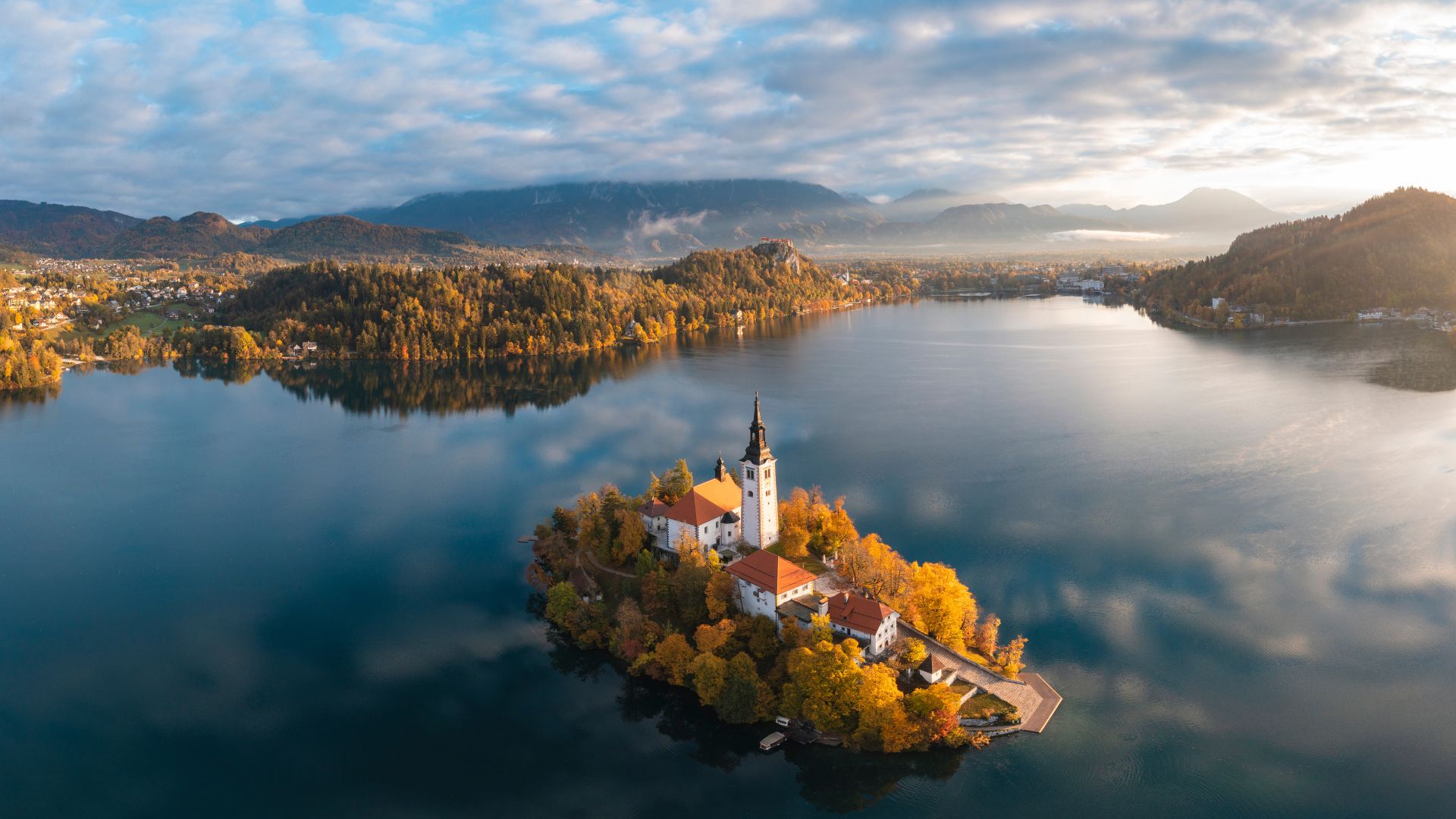
Live out your Disney Princess fantasies with one of Slovenia’s most popular sites, the enchanted, fairy-tale-like Lake Bled. With dazzling waters that surround a Disney-like castle on a high hill and views of the surrounding Julien Alps, there’s beauty literally everywhere you look.
The Grand Canyon, Arizona
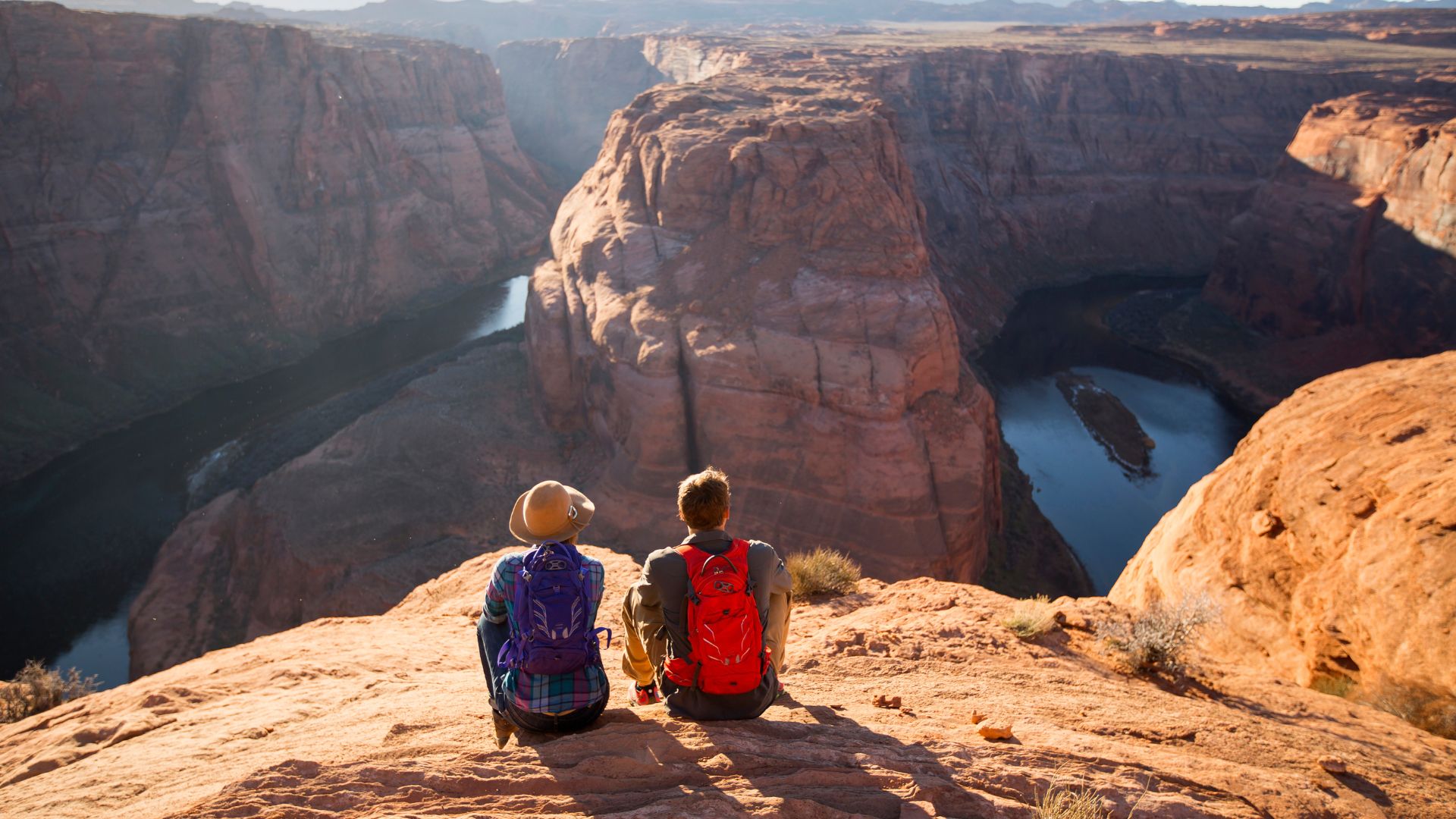
There’s been plenty of songs written about it. People make pilgrimages to camp within its historic, mystic base. Thelma and Louise famously drove into it. It is, of course, the 277-mile long, 18-mile wide, and over a mile deep Grand Canyon. One of America’s National Parks, the Grand Canyon is situated within the state of Arizona and is actually just the result of erosion.
The canyon was formed over millions of years as the Colorado River slowly carved its way through the rock. The rock revealed contains secrets and learnings of the earth, with billions of years of history etched along the caverns.
It’s easy enough to visit from multiple states, with visitors of Las Vegas in neighbouring state Nevada able to take a day trip. But for the full experience, people can camp overnight, sleeping 220 feet below ground.
Meteora, Greece
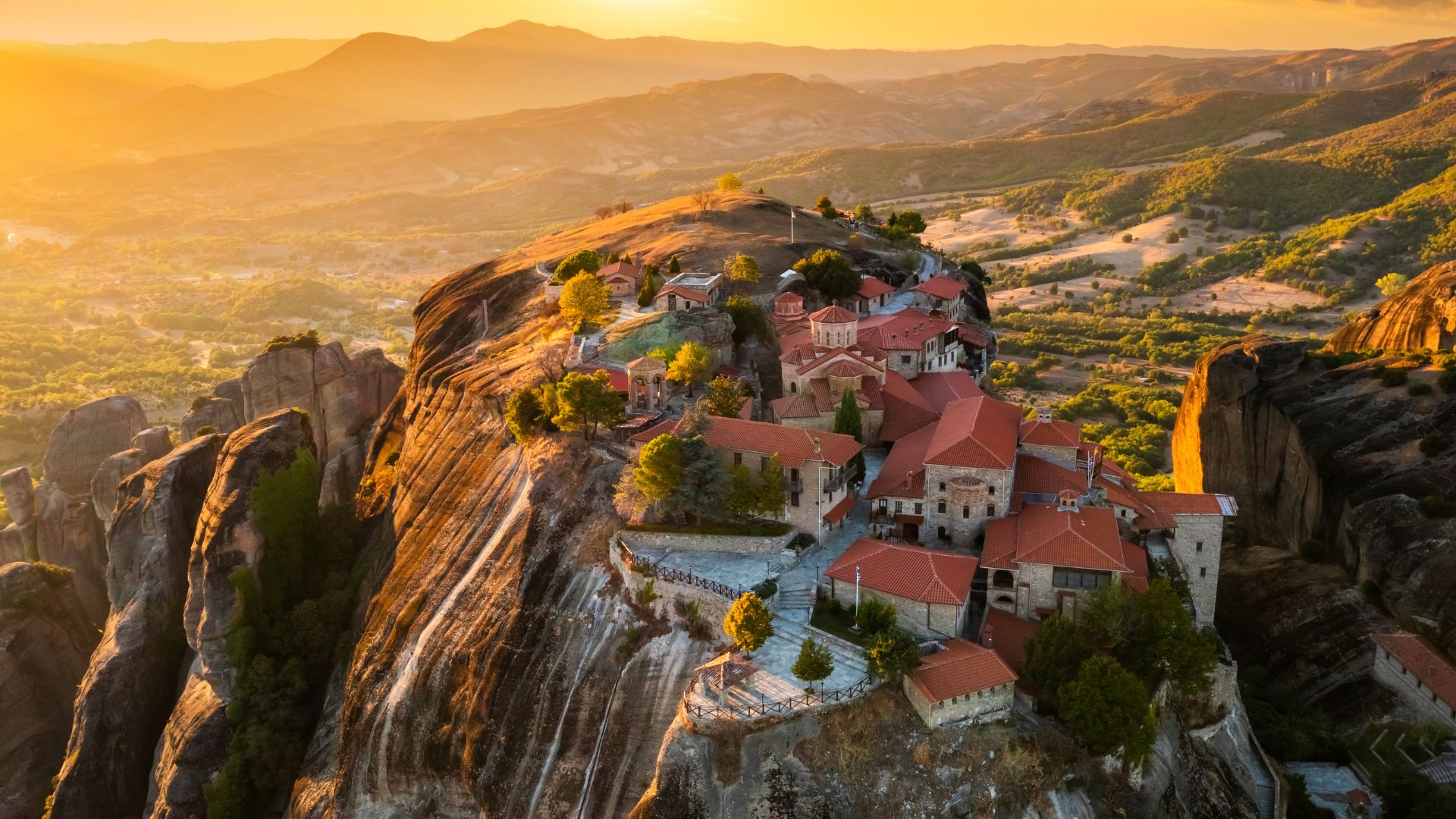
While Greece has plenty of beautiful sites – the white, sandy beaches of Mykonos or the historic ruins in Athens – one of the most surreal and unbelievable sites is Meteora. Located in Thessaly, central Greece, the UNESCO World Heritage Site is a towering landscape made up of a collection of monasteries dotted along sandstone rock formations.
It almost looks like something from a video game or science-fiction, but the monasteries actually date way back into the past, rather than being something futuristic. The religious buildings – all looking ever-so precariously perched – date way back to the 14th century. You don’t have to join the Greek Orthodox Church to appreciate the beauty and many hikers and climbers come to traverse the landscape.
Antelope Canyon, Arizona
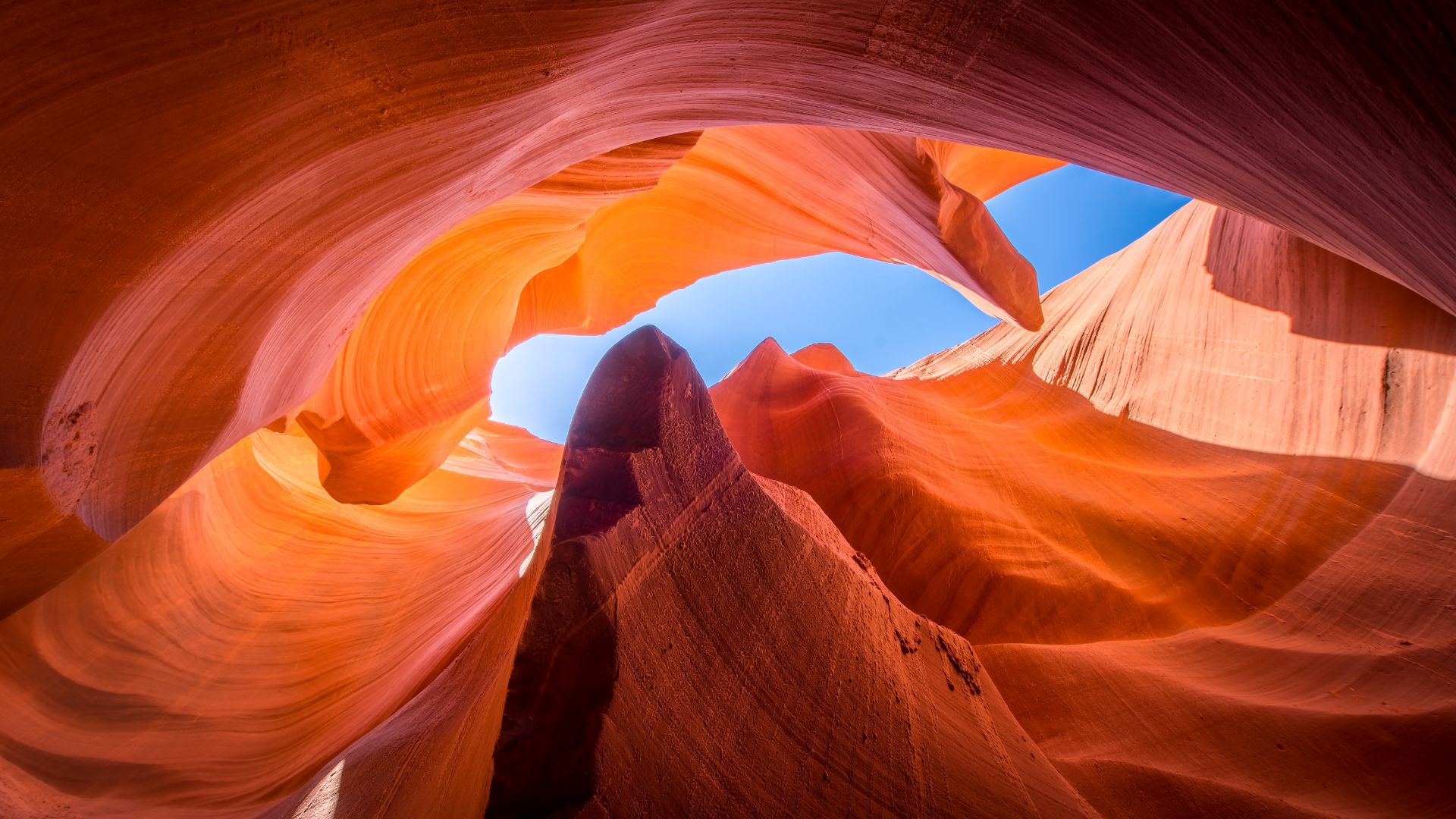
There’s no greater artist than Mother Nature and Antelope Canyon is just one example of this. Located on Navajo land in Lechee, Arizona, the canyons (accessible only through guided tours) are a collection of coloured and patterned rock formations formed over millions of years.
The swirls of colours and interesting shapes have been cultivated and sculpted by wind and water erosion. Because of the unique colours, markings and strange formations, light and shadow can create staggering effects so bring a camera and be prepared to marvel.
The Dark Hedges of Ballymoney, Northern Ireland
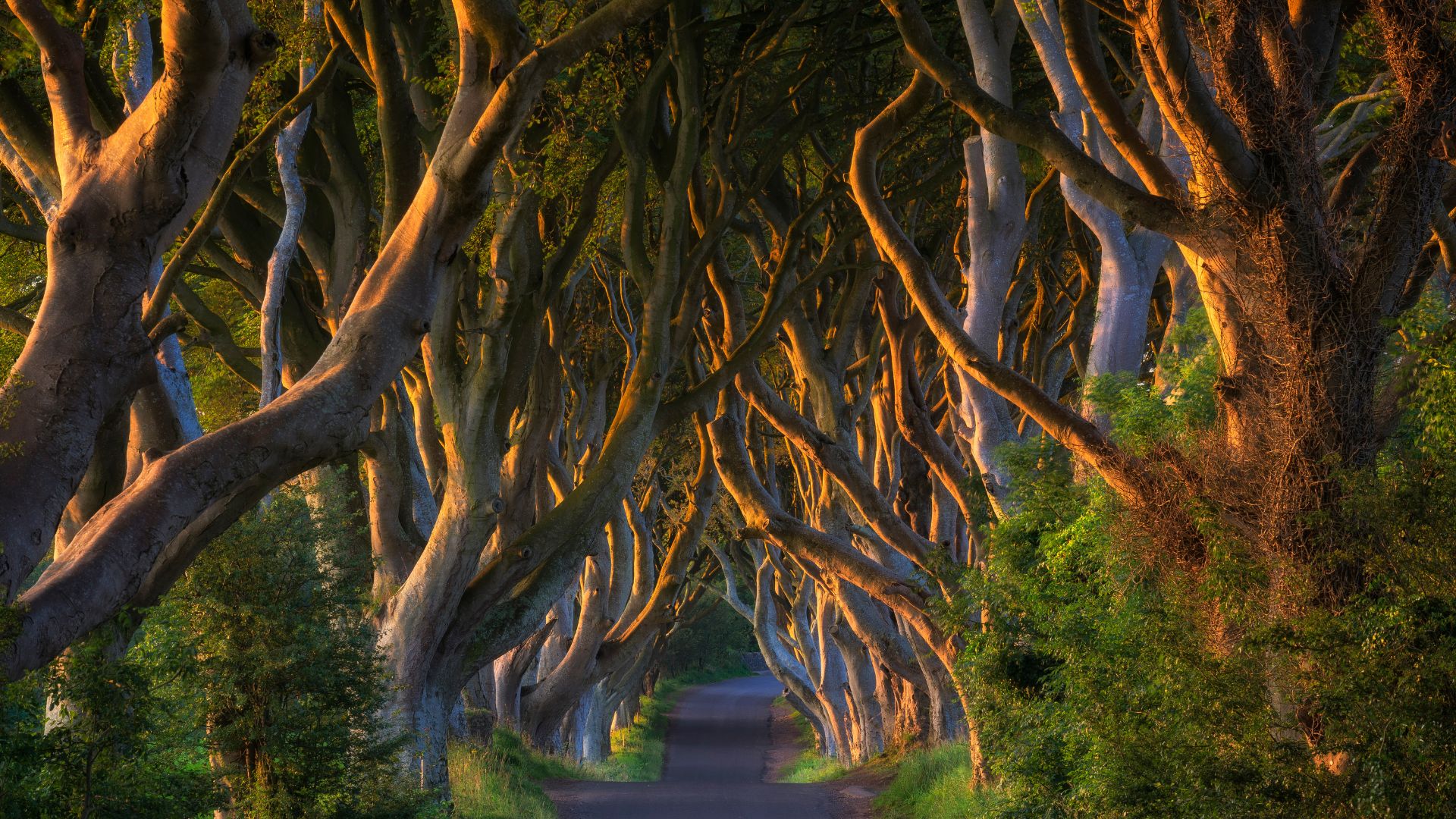
Nature can be beguiling, bewitching and bizarrely frightening all at the same time. Take the Dark Hedges in Northern Ireland. A chilling avenue of thick, dense trees perhaps best known for appearing in the TV series, Game of Thrones, you might feel like you’ve wandered into a cursed forest… but you haven’t. The walk-through only takes up to 20 minutes.
But it’s still a great, atmospheric and other-worldly experience, which was always the intention. The mature beech trees were first planted in the 1700s by the Stuart family, who wanted an imposing entryway to their mansion, Gracehill House. If you like things that go bump in the night, keep your eye out for the Grey Lady, who is said to haunt the dark enclaves.
Lake Hillier, Australia
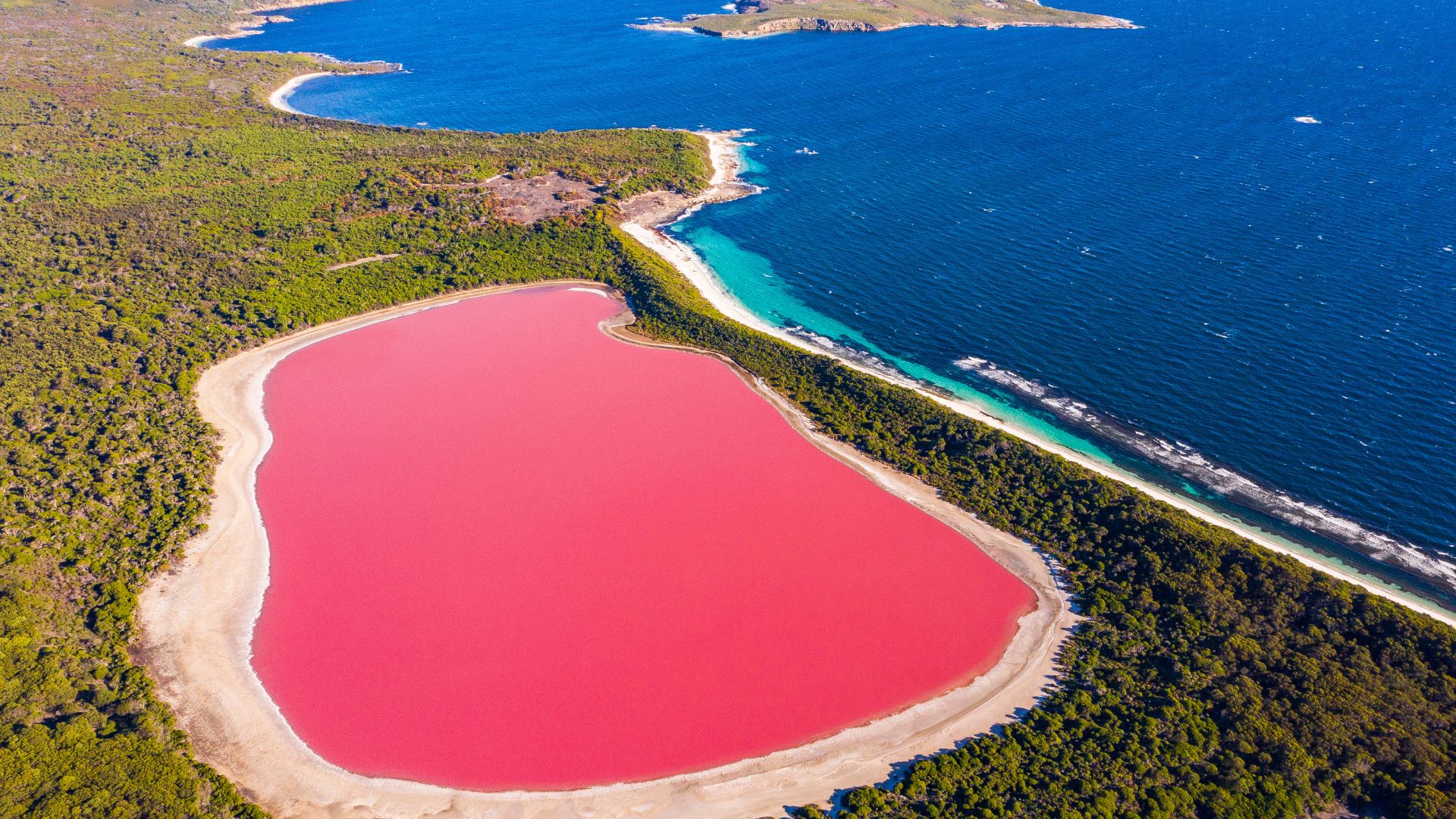
Was Mother Nature the original Barbiecore trendsetter? Lake Hillier would suggest so. Located on Middle Island in Western Australia, Lake Hillier is a vibrant, pink paradise, with the lake turned the technicolour hue reportedly down to a specific type of algae. The lake also has a higher salt concentration than normal seawater.
Complementing the pink waters, the lake is surrounded by luscious greenery. A smorgasbord of colour for visitors, but be warned that - as it’s a nature reserve, you need a permit to visit.
Lençóis Maranhenses National Park, Brazil
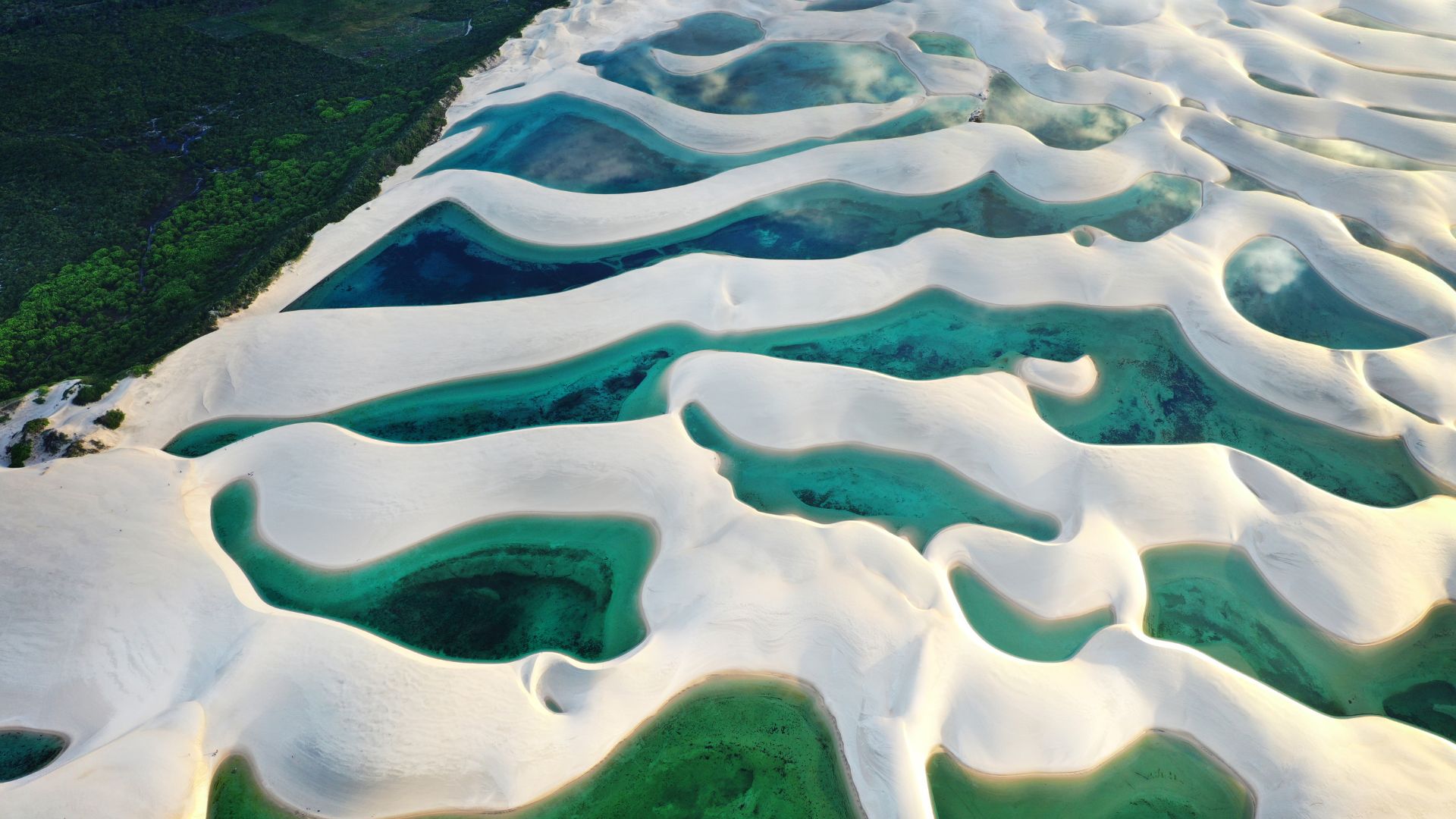
Lençóis Maranhenses National Park is a protected area on Brazil’s north Atlantic coast. What makes this park a surreal, must-see destination is the vast terrain which offers a startling juxtaposition.
There are long stretches of white sand dunes and arid desert… but then there are swamps and rainwater lagoons that form in stark contrast with the dunes. Think of it as a series of mini beaches all in one long stretch, with sand forming around pools of water in naturally formed versatile shapes and sizes.
Marble Caves, Patagonia
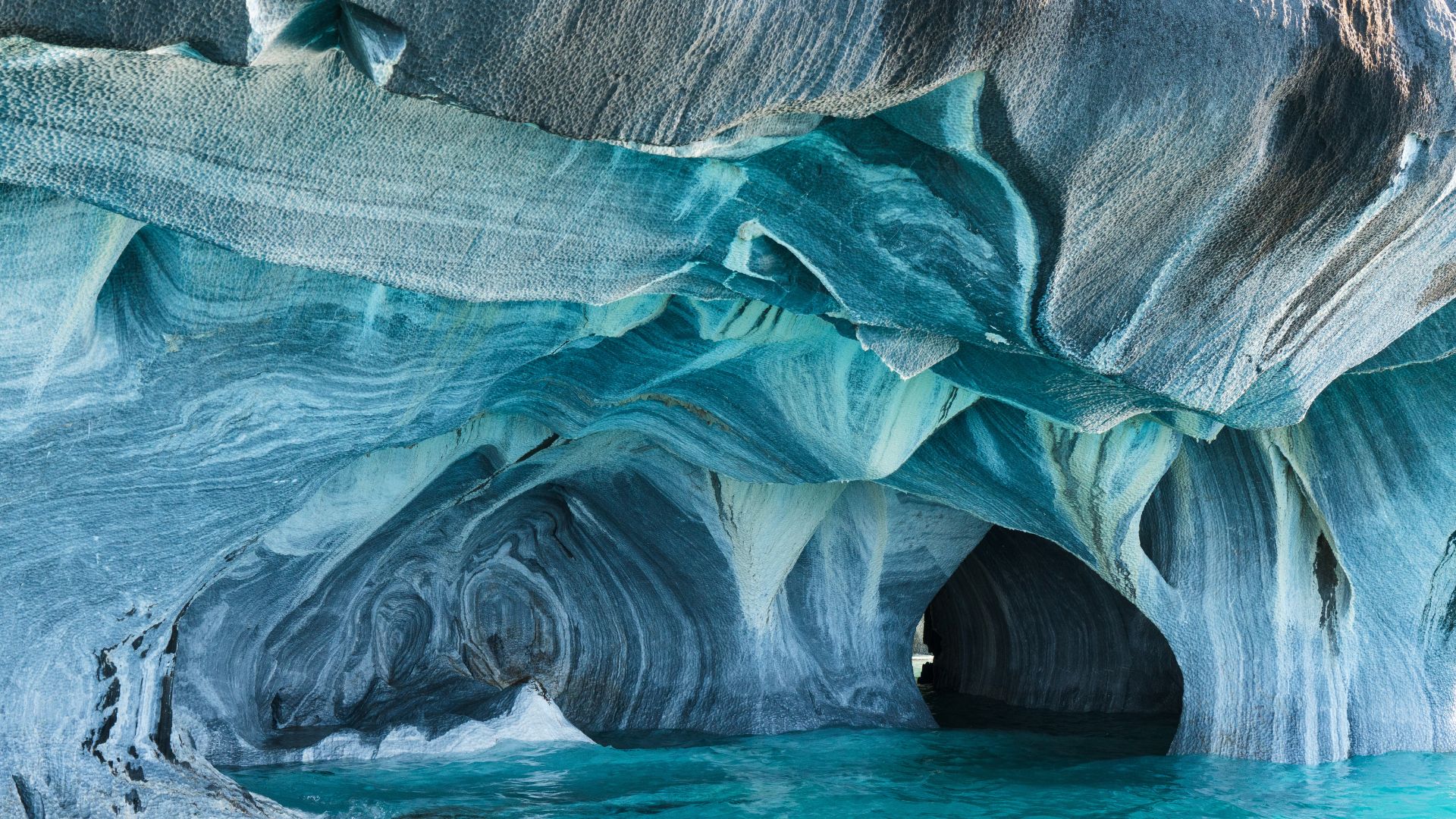
In Patagonia, Chile, the Cavernas de Marmol – or Marble Caves – are a series of sculpted, white marble caves made through thousands of years of erosion. The mesmerising caves – which feel like they should have been made by advanced technology – have actually been carved into the side of the cliffs by the waters of Lake General Carrera.
The colours of the marble can vary from white to blue and green, and the best time to visit is in the summer months when the water levels are lower so you can more easily access the caves.
Vaadhoo Island, Maldives
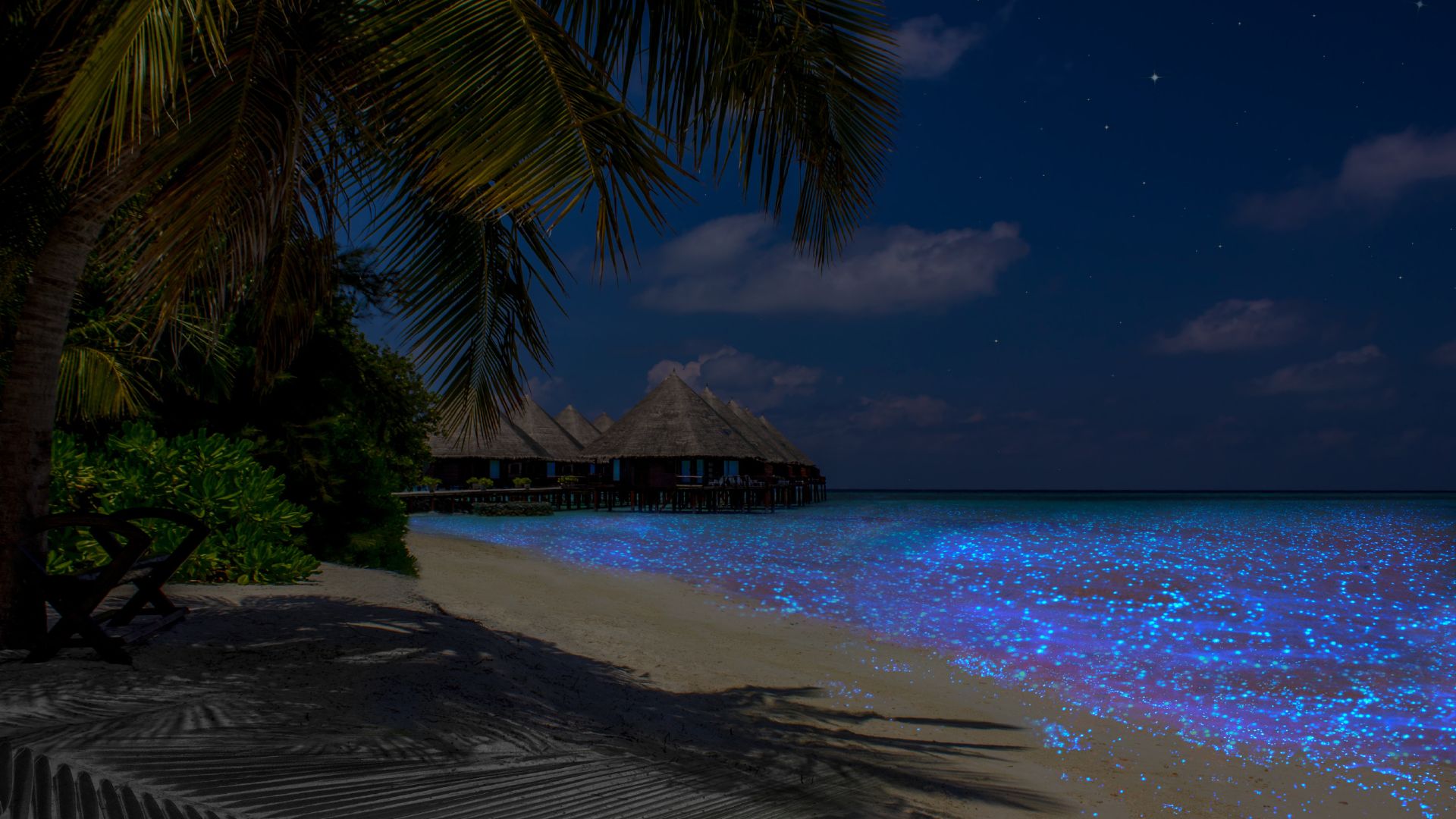
Ready to touch the stars? Well, reach down rather than look up at the beaches at Vaadhoo Island in the Maldives. The bioluminescent phytoplankton in the water’s reefs emanates a celestial blue glow, making it look as though the stars have found their way down to earth for the night.
Fly Geyser, Nevada
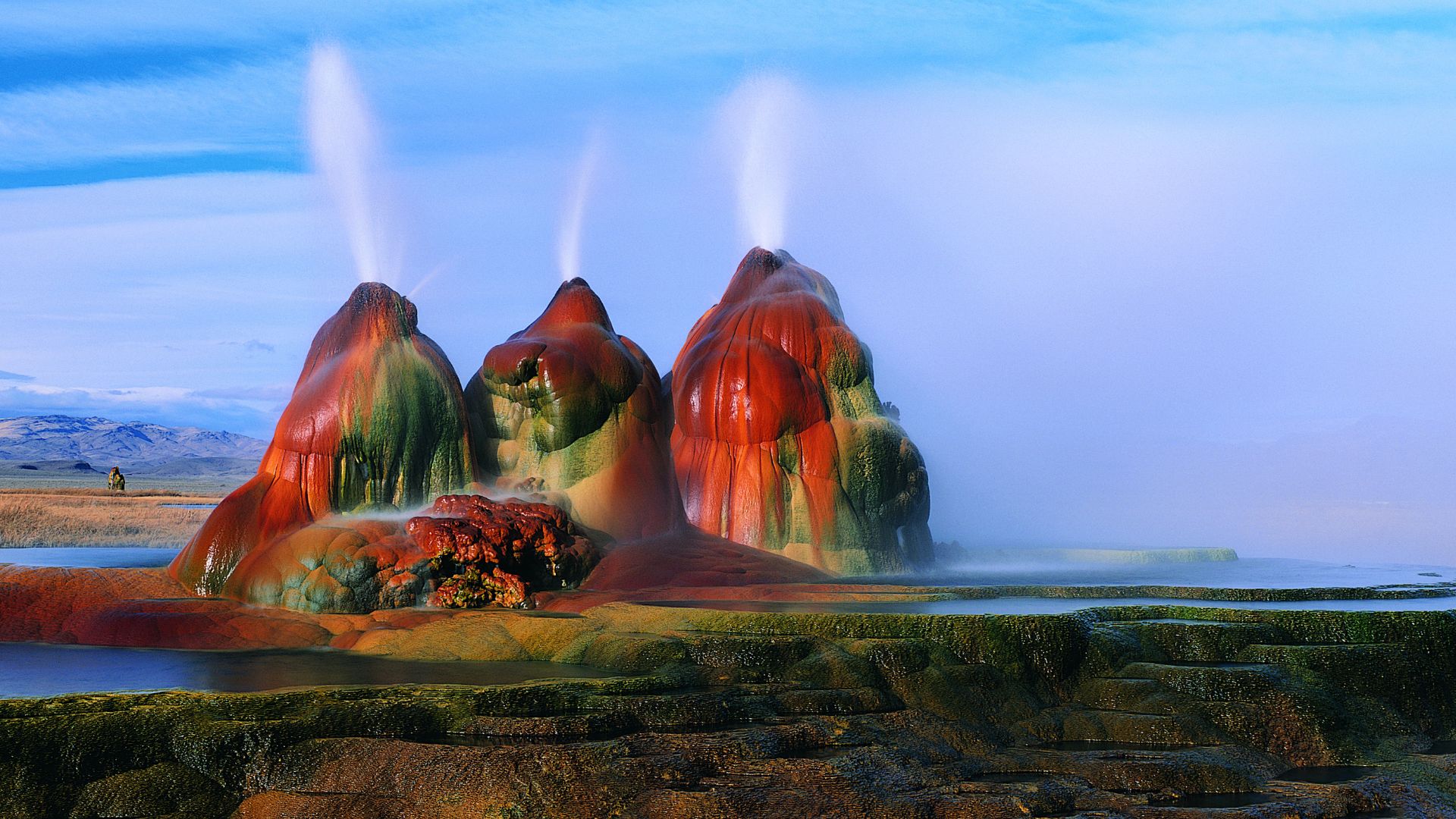
If you thought that the bright lights of Sin City were the only thing taking a punt on in the Nevada desert, think again. Located on Fly Ranch in Northern Nevada, there are six-foot-tall, multicoloured geysers that spit out coloured water over five feet into the air.
The main geyser was created accidentally in 1964 after a power company drilled a test well at the site. According to later reports, the well was either left uncapped or not properly plugged which led to the hot waters to shoot out and begin leaving mineral deposits.
These calcium and other mineral deposits began to grow each year and when you let that accumulate over a few decades, you end up with huge, mounds of multicoloured matter which spurt out water in a dazzling display.
Chocolate Hills, Philippines
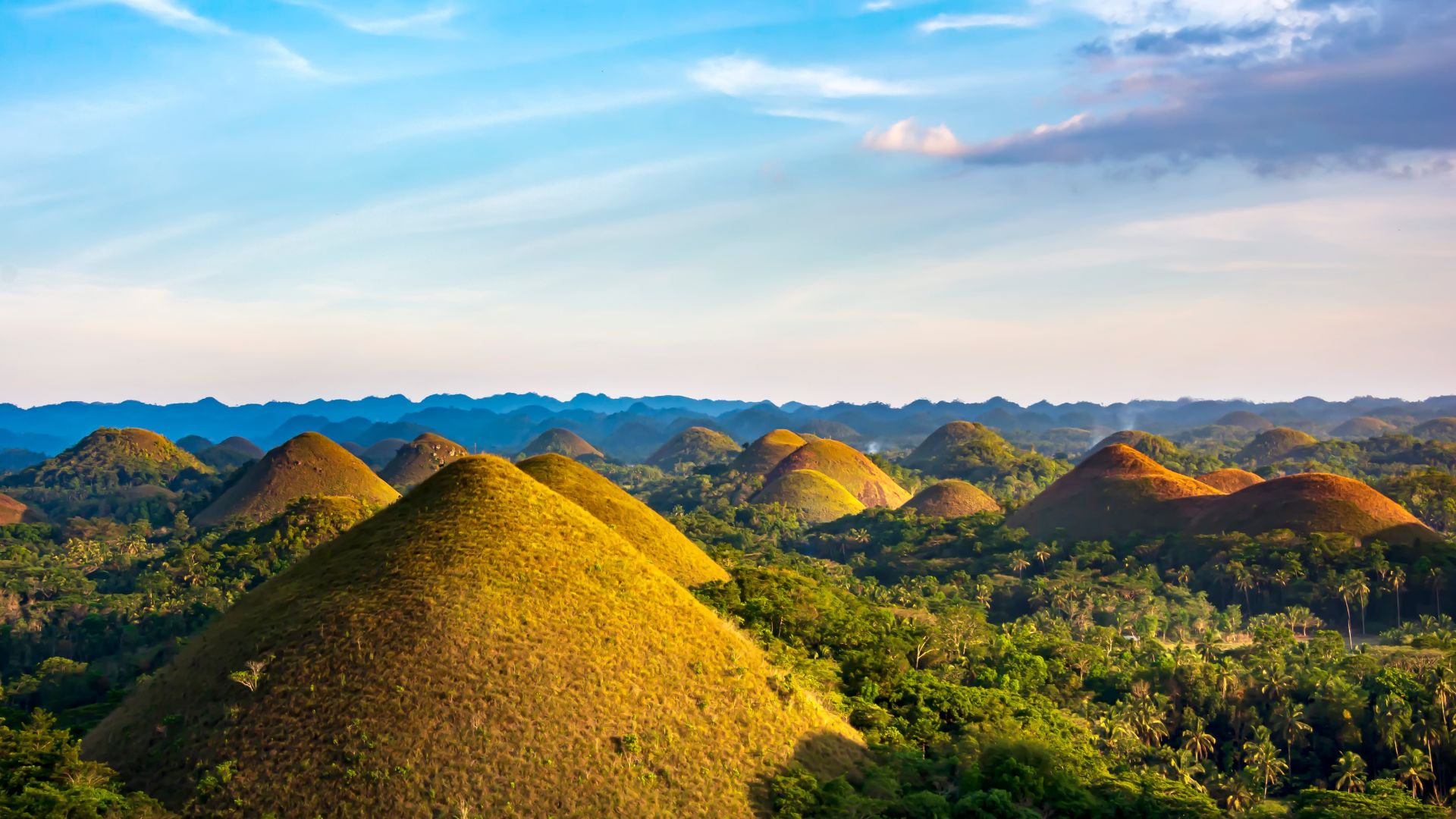
Before we explore these stunning hills, a disclaimer – there’s no chocolate to be consumed here. Unless you bring your own. The name derives from the chocolatey colour the magnificent hills turn during the dry season.
Based in Bohol, the Philippines, the Chocolate Hills are a collection of over 1,700 geological formations that will be covered in bountiful, green grass during the rainy season, and change in the dry seasons.
Avenue of Baobabs, Madagascar
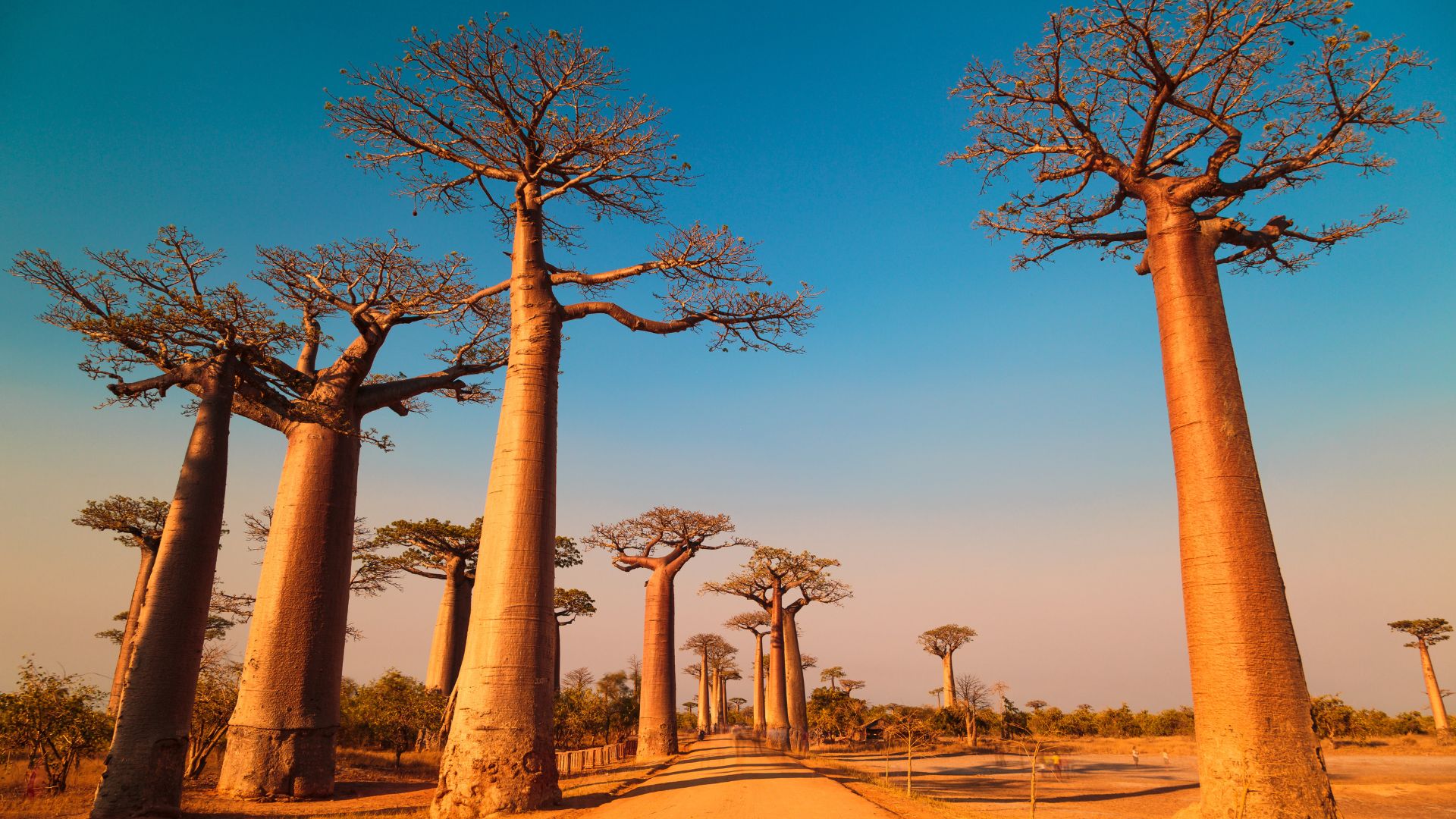
A symbol of Madagascar, the Baobab tree (also known as the Tree of Life) is remarkable in its own right – noted for its incredibly thick trunk and distinctive shape, reaching heights of nearly 100 feet.
Now imagine a grove filled with these majestic trees rising tall above a distinctive land of rice paddies and meadows - it's a beautiful display of nature well worth a visit.
Waitomo Glow Worm Caves, New Zealand
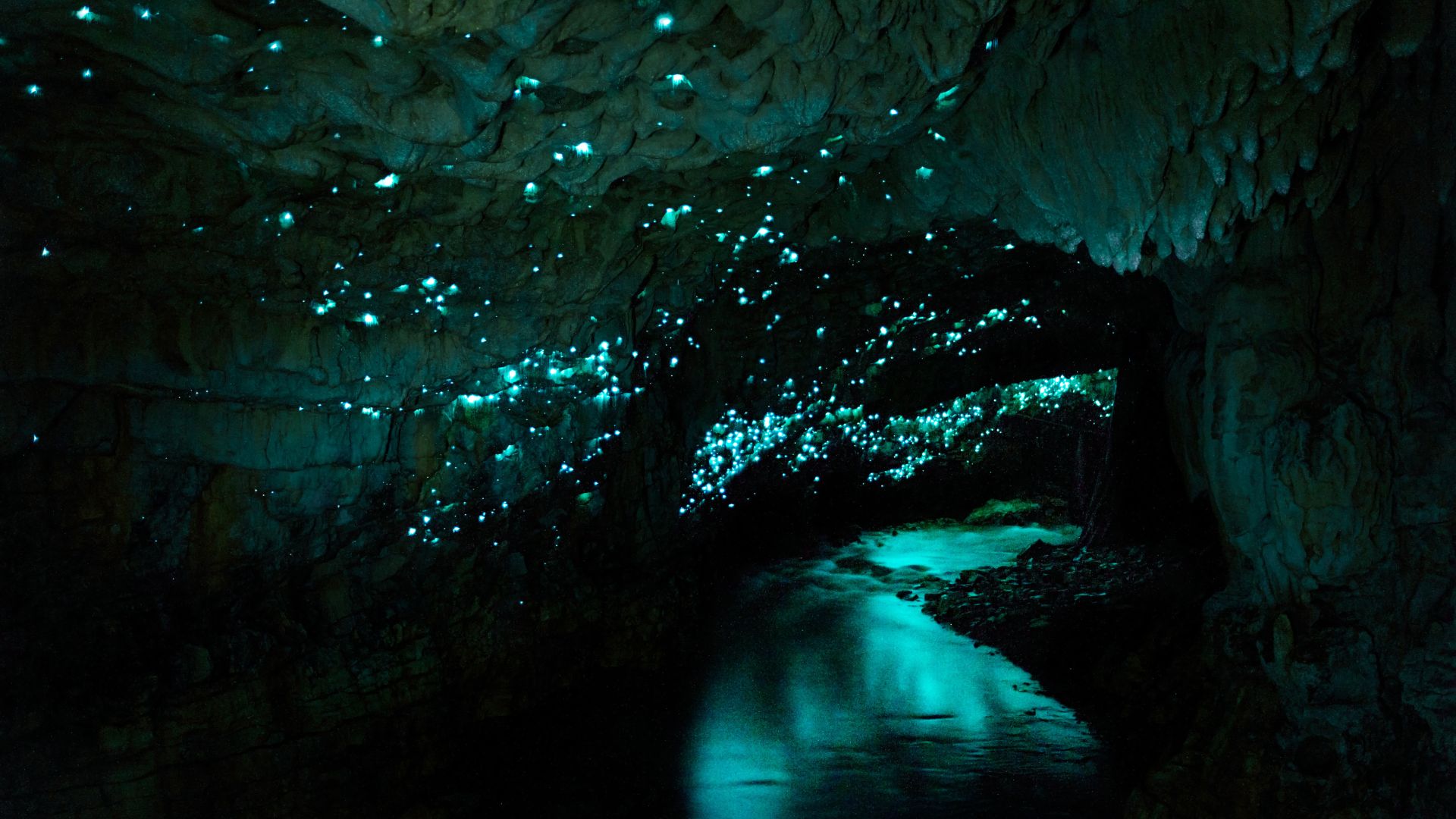
Ready, set, glow. The Waitomo Caves are a system of limestone caves in Waitomo, New Zealand, known for their glow worm grottoes, which light the way with a celestial, out-of-this-world effect. These glow worms (or, as the scientists would call them, Arachnocampa luminosa) are found only in New Zealand. The caves form part of the Waitomo Streamway System, which covers the Ruakuri Cave, Lucky Strike, and Tumutumu Cave.
'Mirror Beach’, Japan
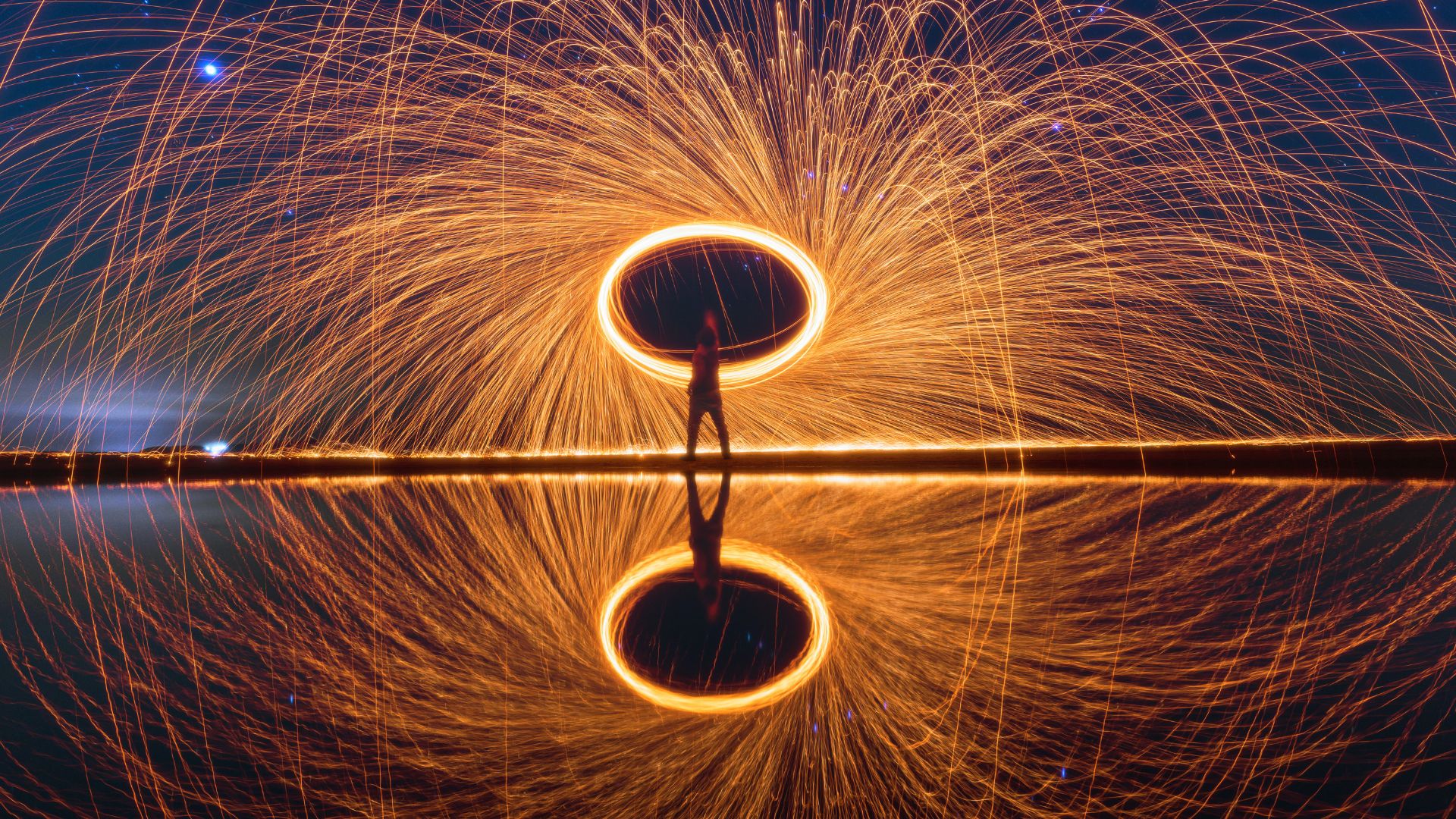
Located just outside Mitoyo on Kyushu Island, visitors can discover Chichibugahama Beach, a short stretch of sand that has earned the name “mirror beach” for its reflective tide pools. With no wind to disturb the waters, the reflections are near perfect, creating an unforgettable harmony between sky and land. The crystal clear waters are also perfect for swimming and snorkelling.
Darvaza Gas Crater, Turkmenistan
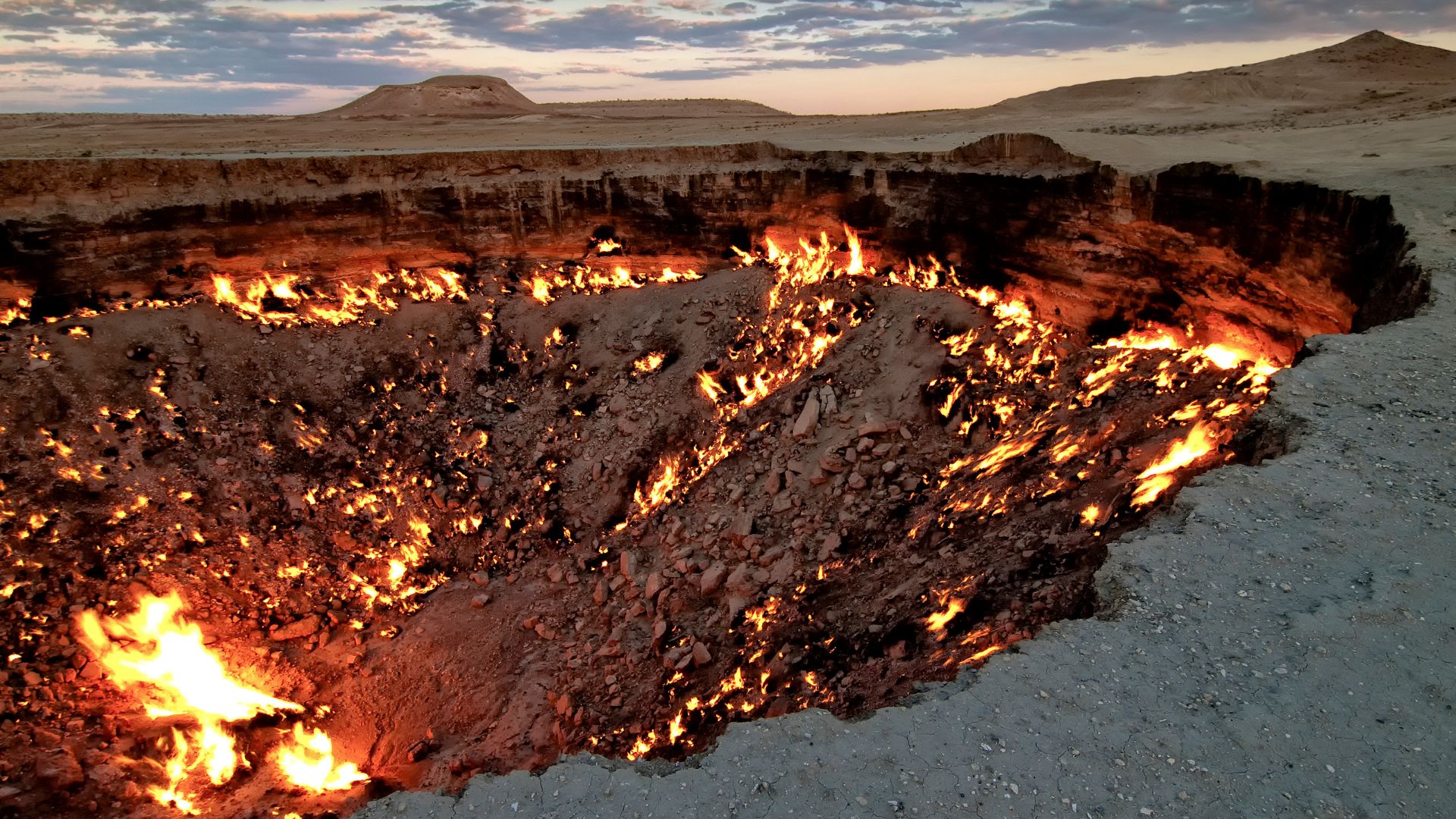
This other-worldly spectacle is often referred to as the ‘Door to Hell’ or ‘The Gates of Hell’ – and it’s not hard to work out why. While you might find yourself desperately reaching for a Bible to ward off end times, the hellish-looking 226-foot crater is actually a massive natural gas crater located in the Karakum Desert.
And, perhaps even more bizarrely, it was set alight entirely by mistake. The Gates of Hell were created in 1971 when Soviet scientists drilling for natural gas in the region caused a collapse. To prevent the release of toxic gases, they decided to ignite the escaping gas, expecting the fire to burn out within a few days. However, it has been burning nonstop ever since.
Blood Falls, Antarctica
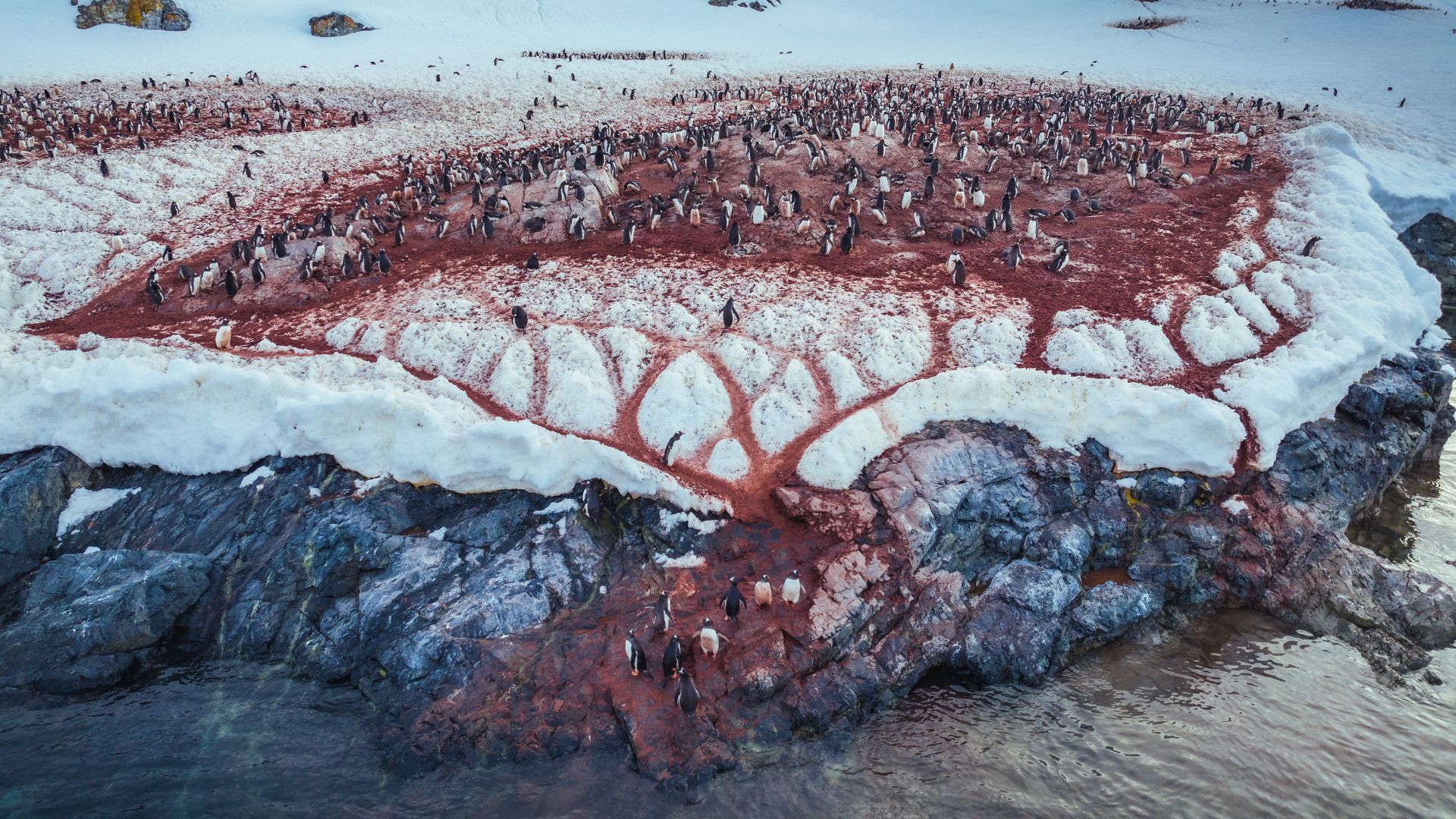
A waterfall of blood red trickles dramatically against the backdrop of icy, blue glaciers. It’s something that could come right from science fiction. But it’s the reality of the landscape at the Taylor Valley in the McMurdo Dry Valleys region in Antarctica. The Blood Falls is a striking image to behold, but the reality is less gruesome and violent than the name suggests. The crimson, blood-red waterfall is caused by the iron-rich saltwater that has been trapped beneath the ice for millions of years.
Saalfeld Fairy Grottoes, Germany
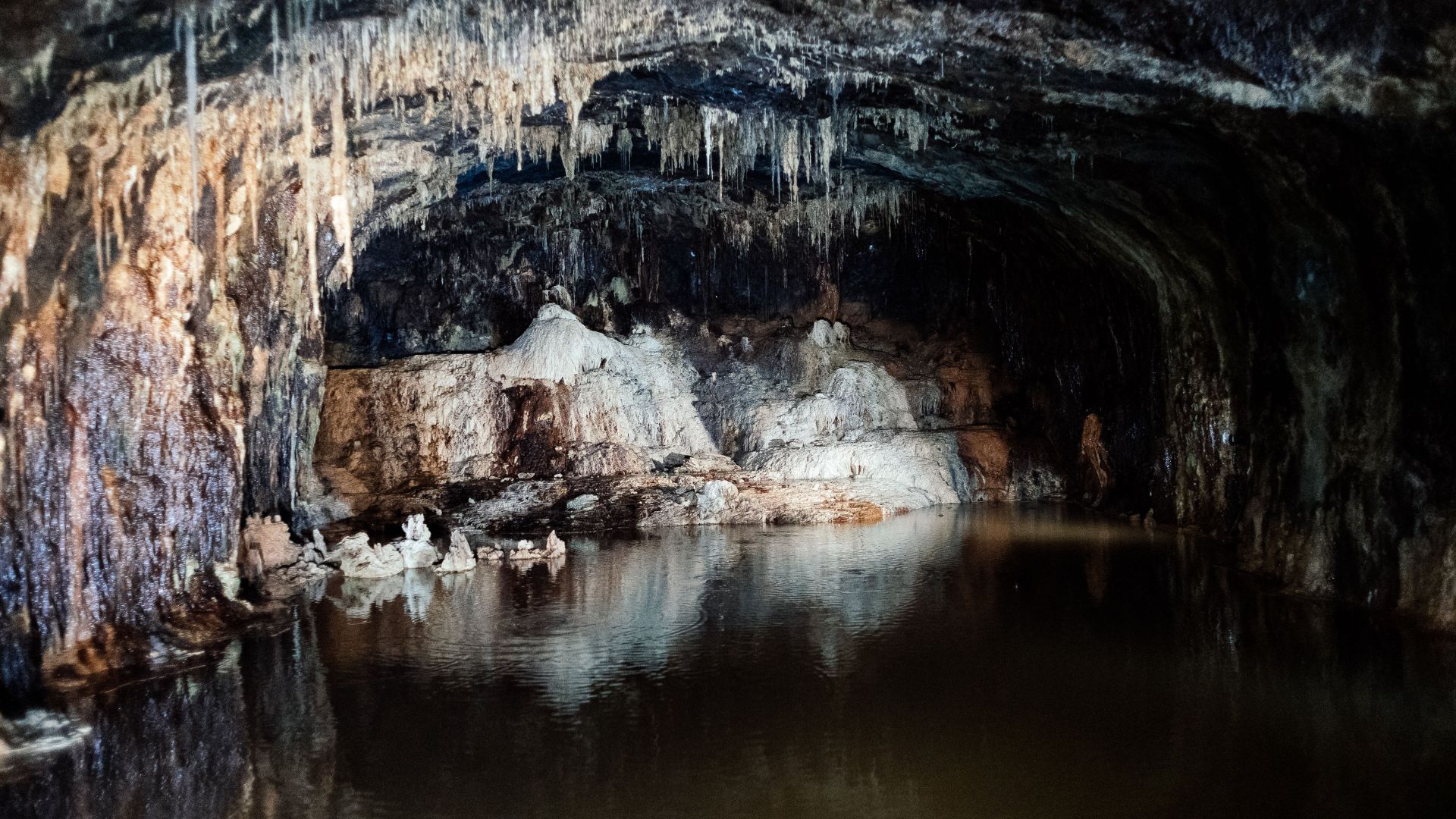
Beneath the town of Saalfeld in Germany is a network of intricate caves that look like they’re plucked right out of a fairy tale. With a myriad of stalactites and stalagmites in a rainbow of colours (whites, yellows, browns and reds), visitors can take a guided boat tour along the underground lake.
They’ve been dubbed the most colourful cave grottoes in the world by the Guinness Book of Records, the oldest part of the caves plays up to the enchanted feel, with highlights including the Fairytale Cathedral and the Castle of the Holy Grail.
Wistman’s Wood, Devon
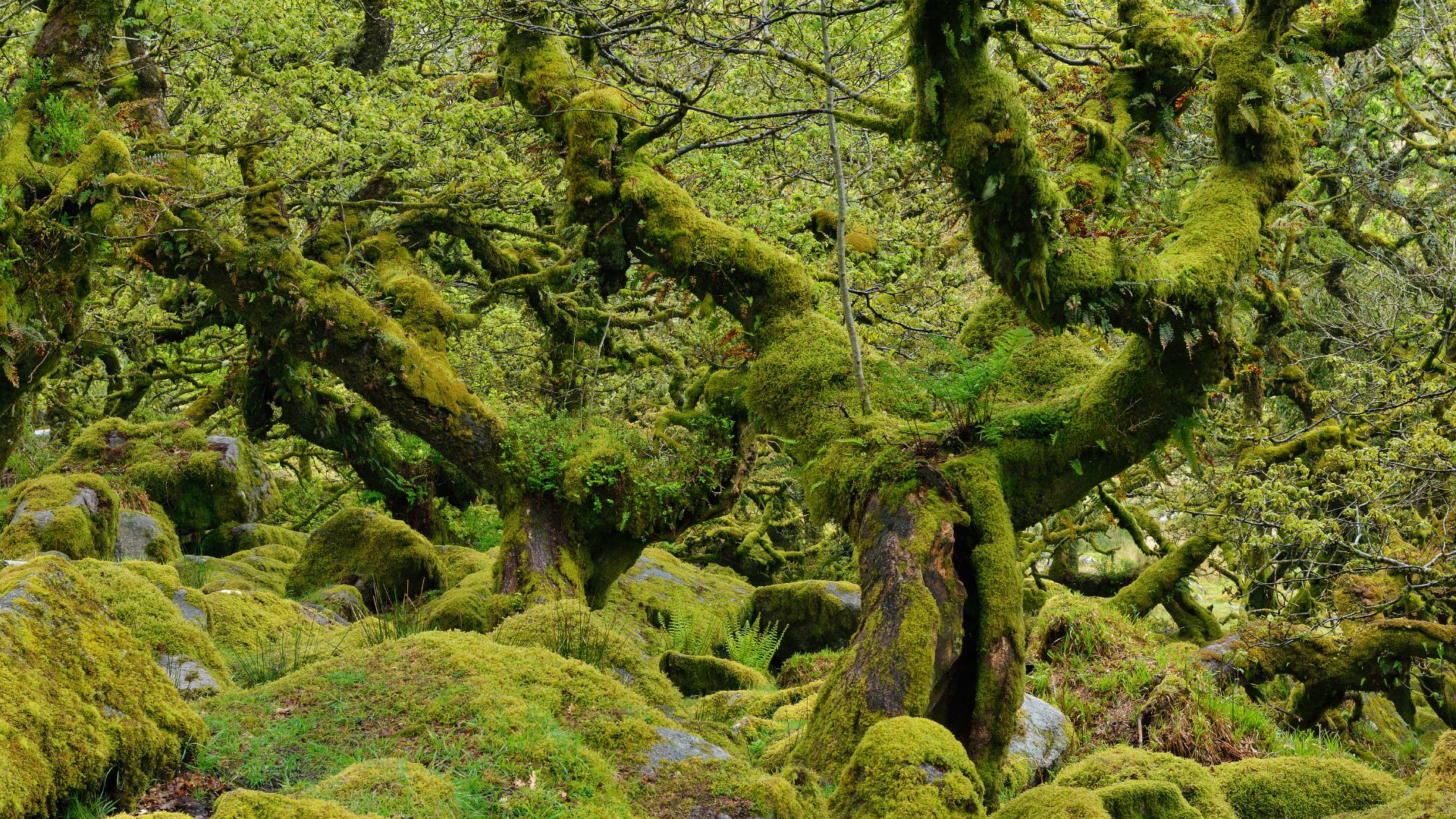
England is known for its deep history and enchanting folktales, and Wistman’s Wood in Devon really captures this slice of Olde English magic. The ancient woodland, located on Dartmoor National Park, is replete with towering, twisted oak trees, covered in heavy layers of moss and lichen.
With winding paths, intimidating old oaks that block out the light, and the remoteness of the woodland, it most definitely feels like a fairy tale forest.
Rakotzbrücke, Germany
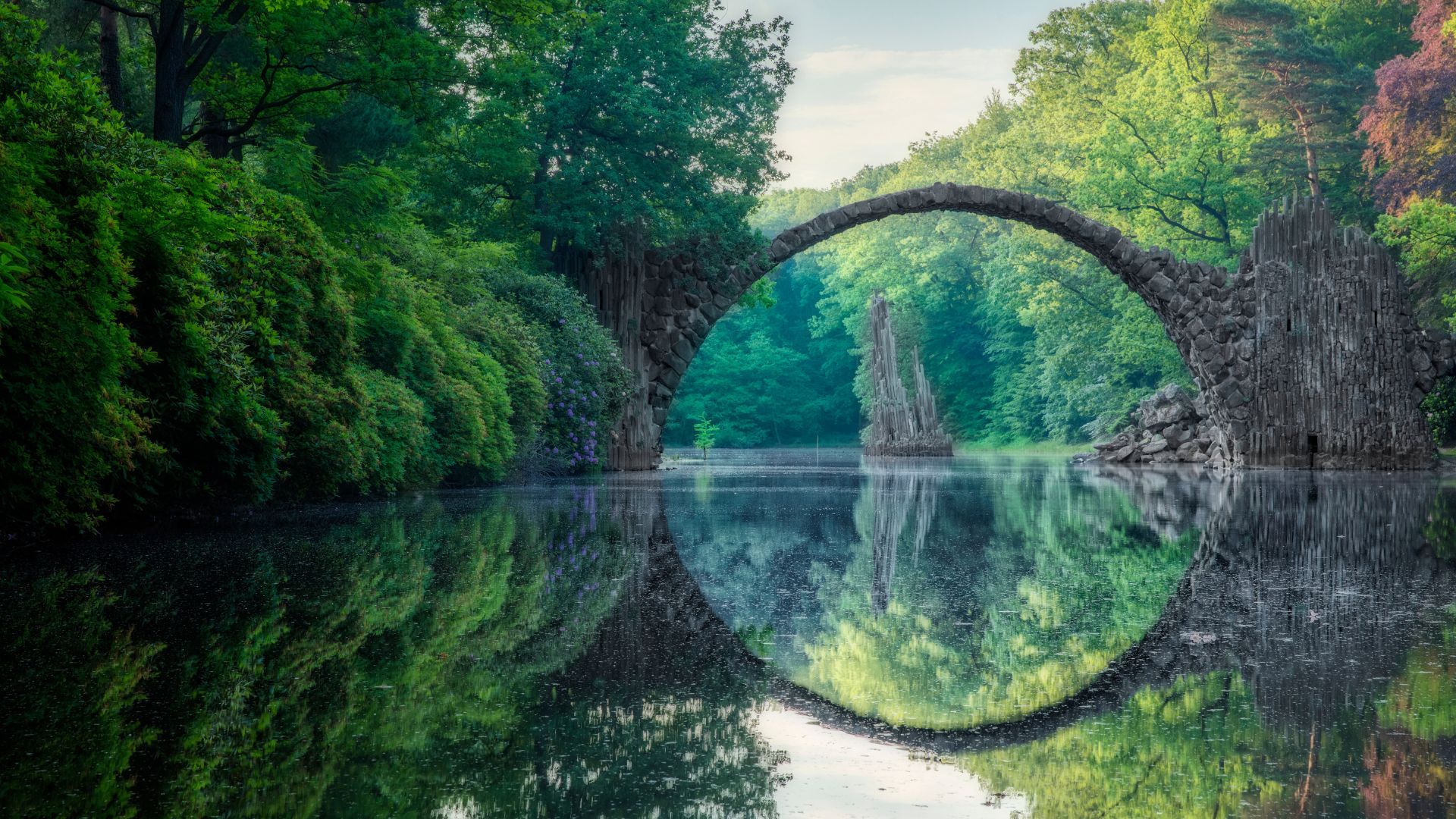
This miraculous-looking bridge is so perfectly designed, it has become known as The Devil’s Bridge (which feels like the Devil is getting unnecessary praise). The meticulous design of the bridge means that, from whatever angle you view it, it makes a perfect circle with its own reflection in the water below, giving a sense of fairy tale fantasy and aura.
The bridge was commissioned in the 19th century and it can be found tucked away in the Kromlau Park in Germany, bordering with Poland.
White Sands National Park, New Mexico
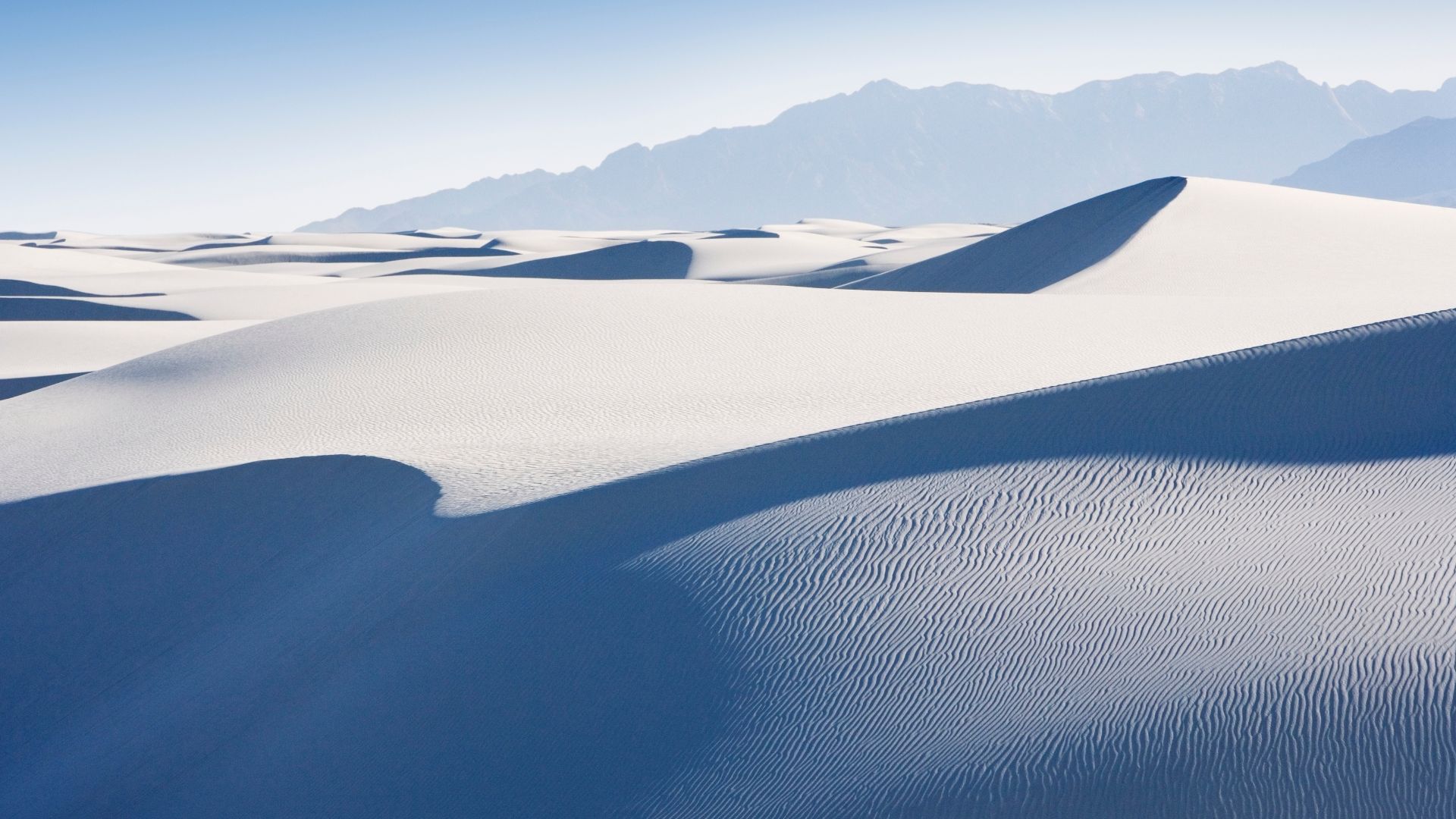
If you’re ever lucky enough to make it to the White Sands National Park, you might, briefly, think you’ve landed on the moon. A glorious and mind-bending region in Southern New Mexico, the vast terrain is an astounding stretch of powder-white stillness.
The sand covering this 270-square-mile park isn’t actually regular sand, nor is it white. It’s gypsum and not silica, which is what you’d find elsewhere, like at the beach. Gypsum is a clear substance and only appears like snow because the grains scratch against one another and reflect the sun’s rays.
Being filled with the substance, the park is home to the largest gypsum dune field in the world.







